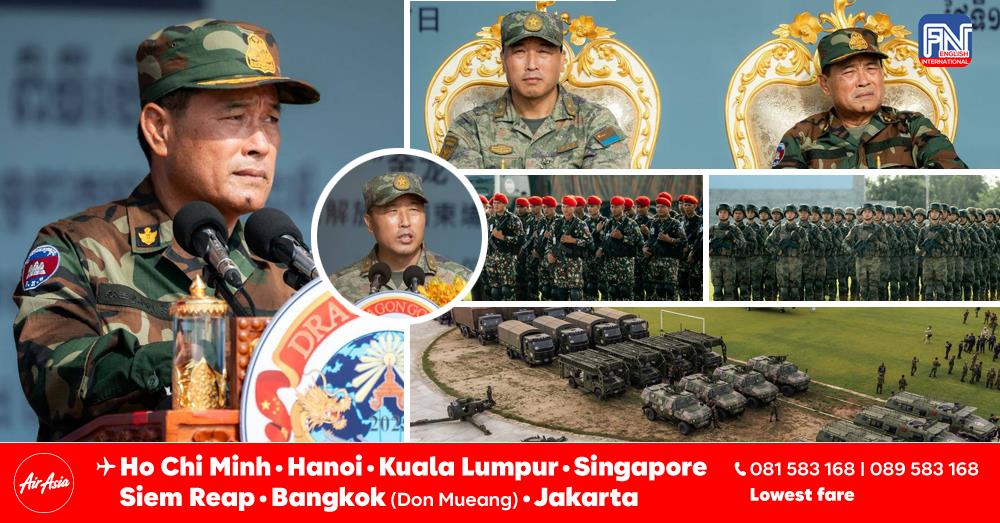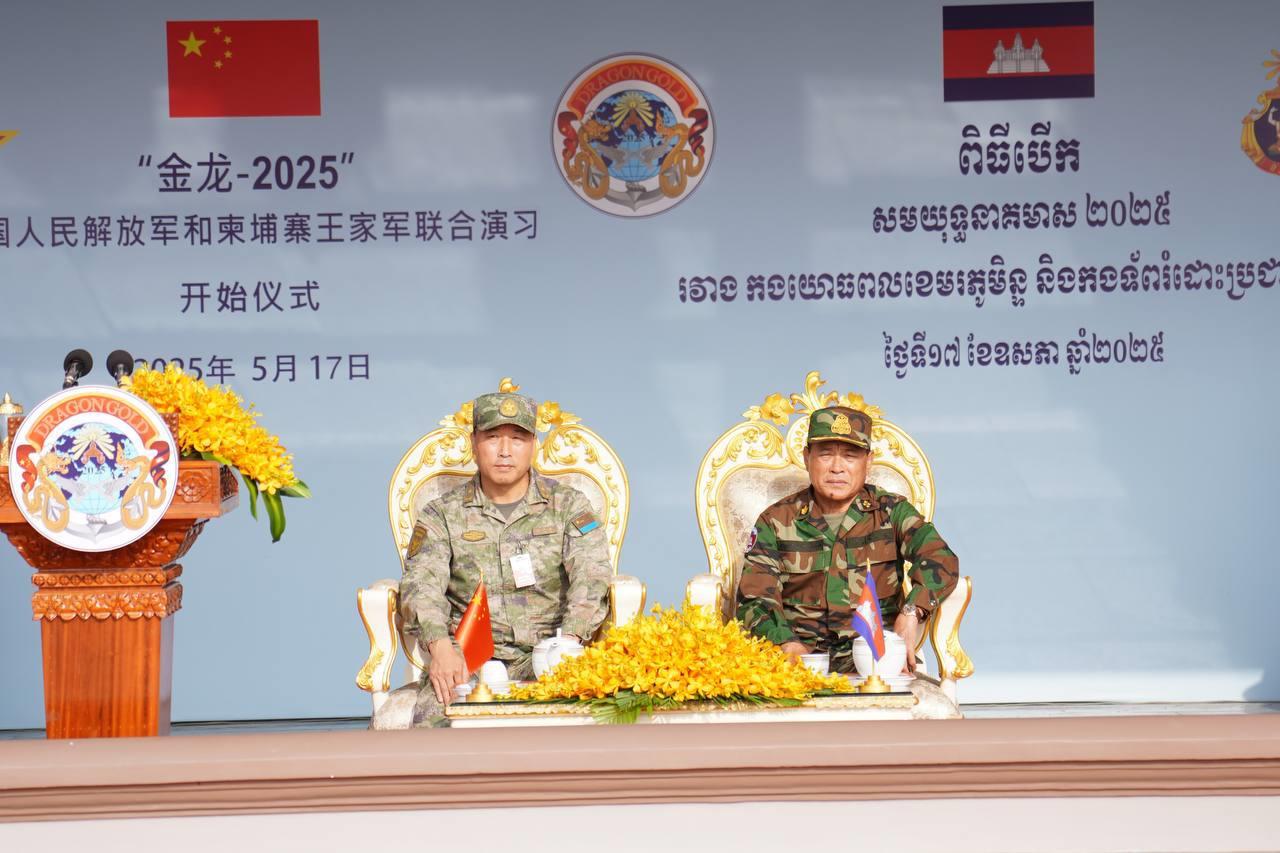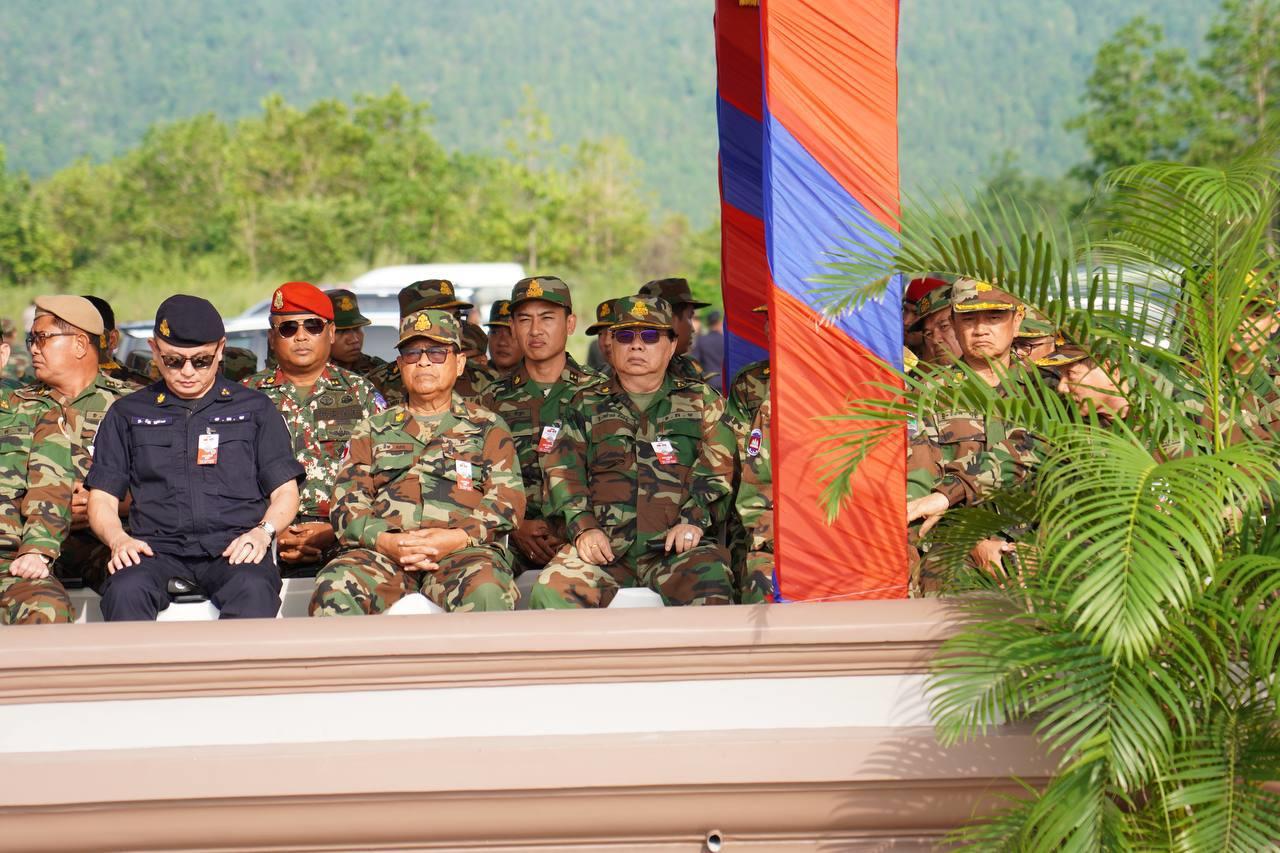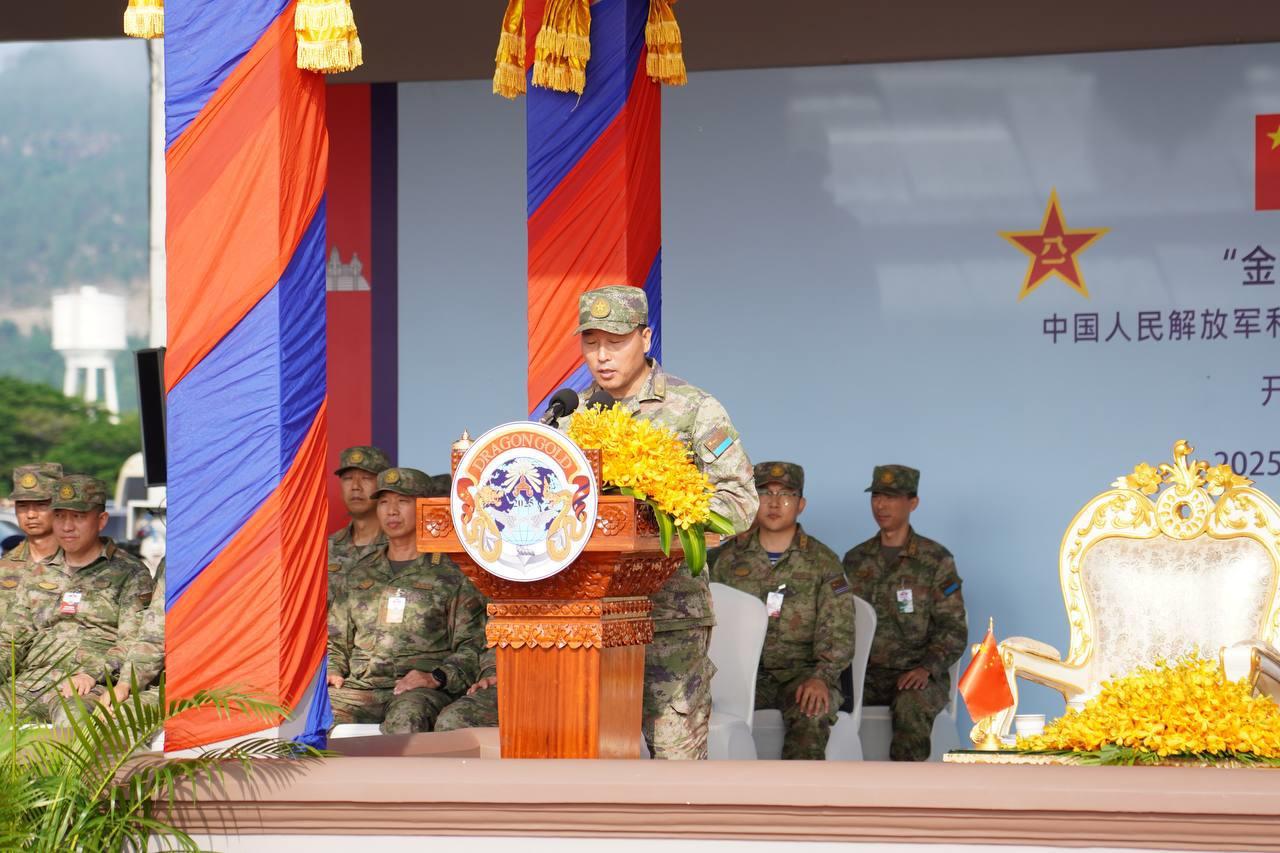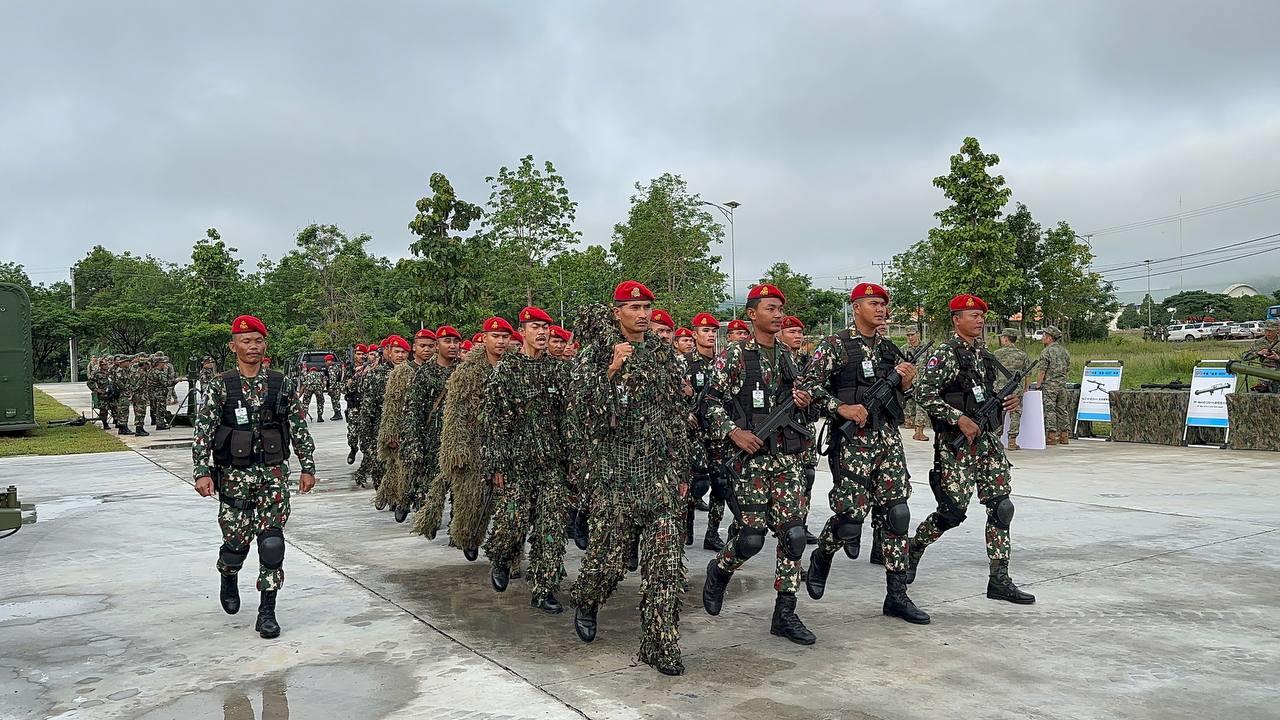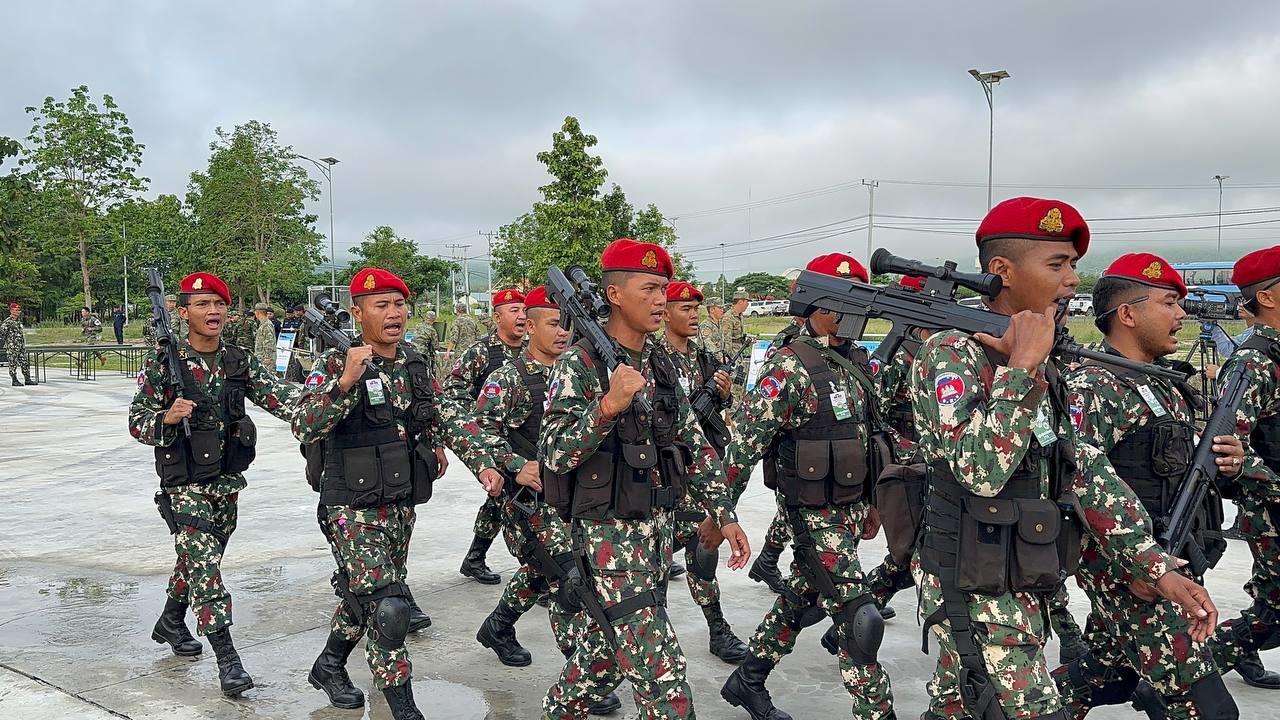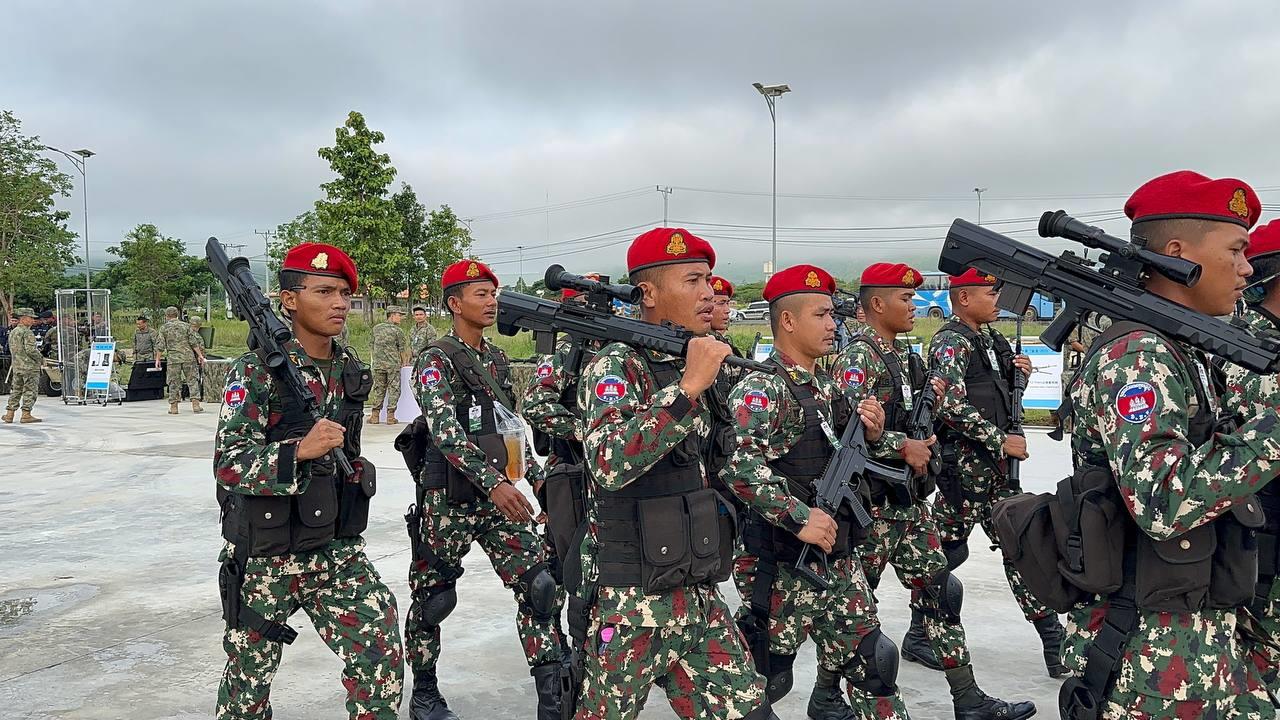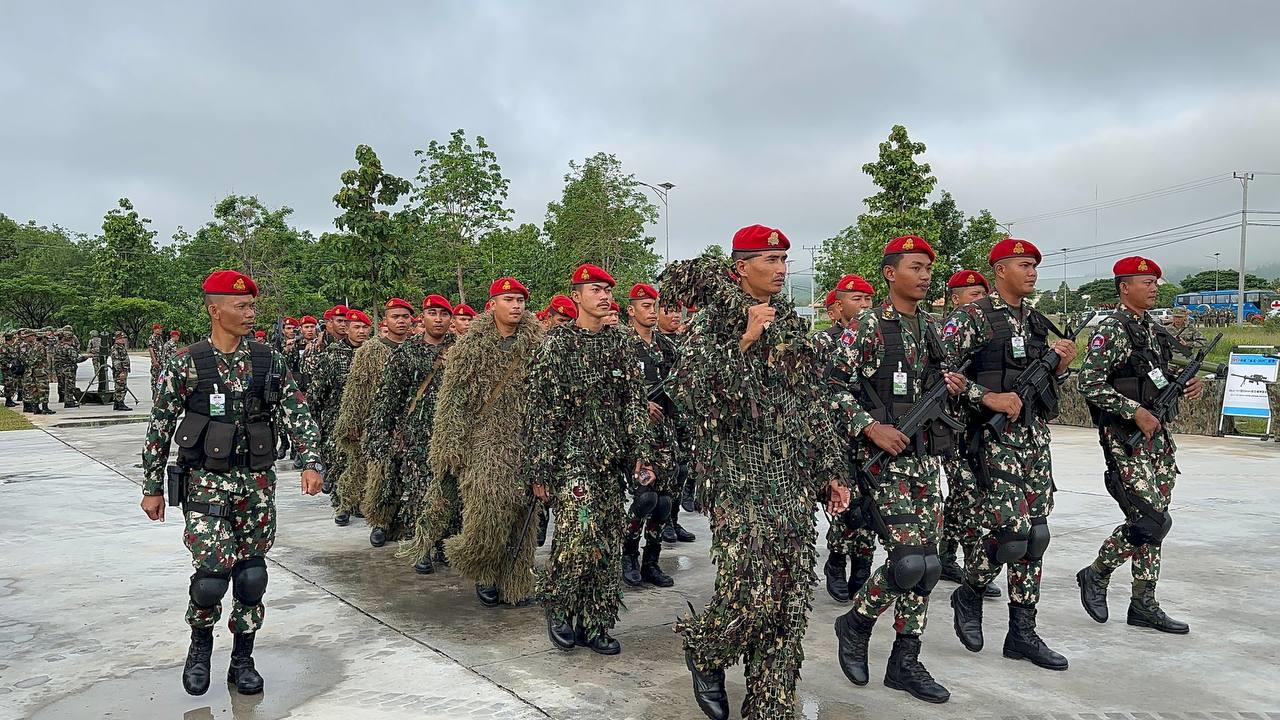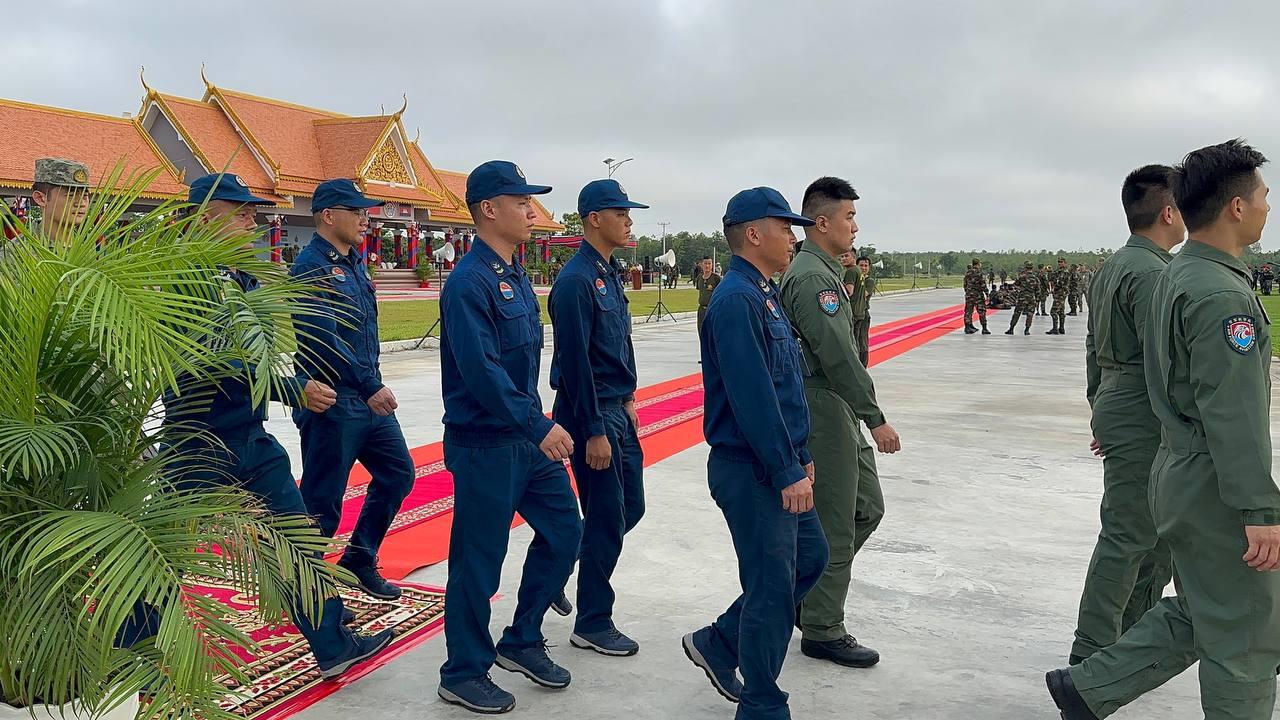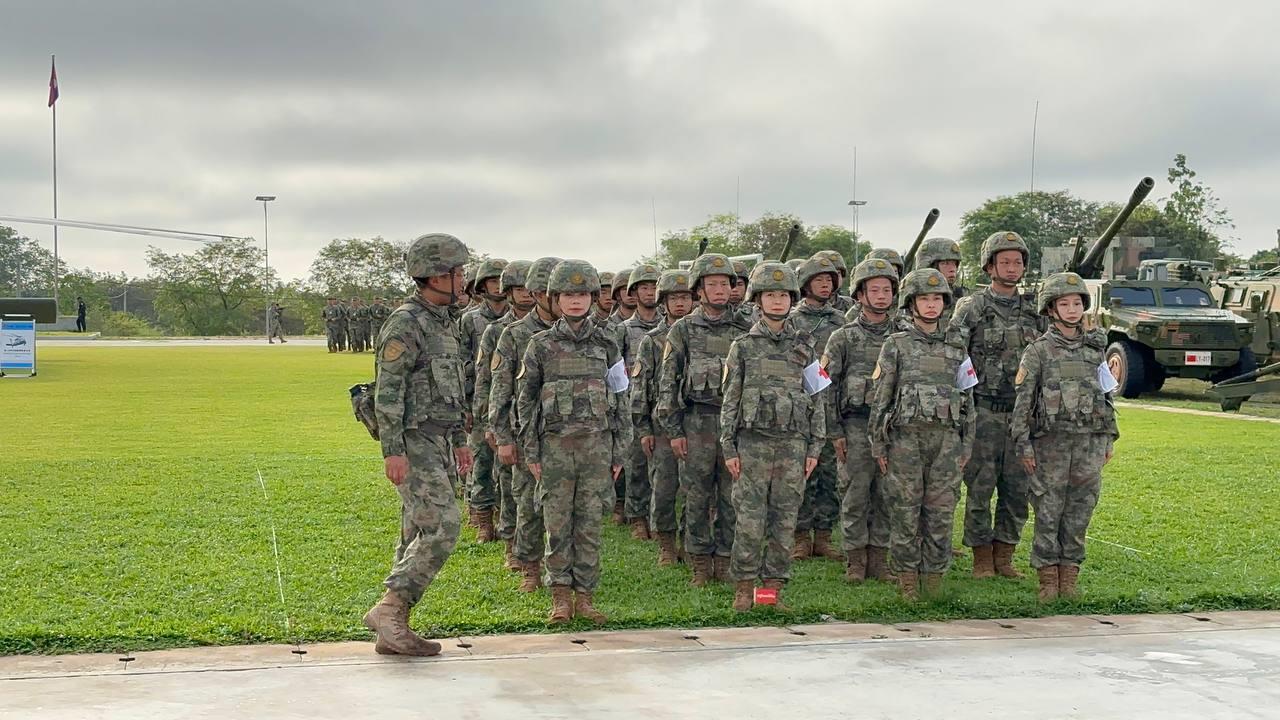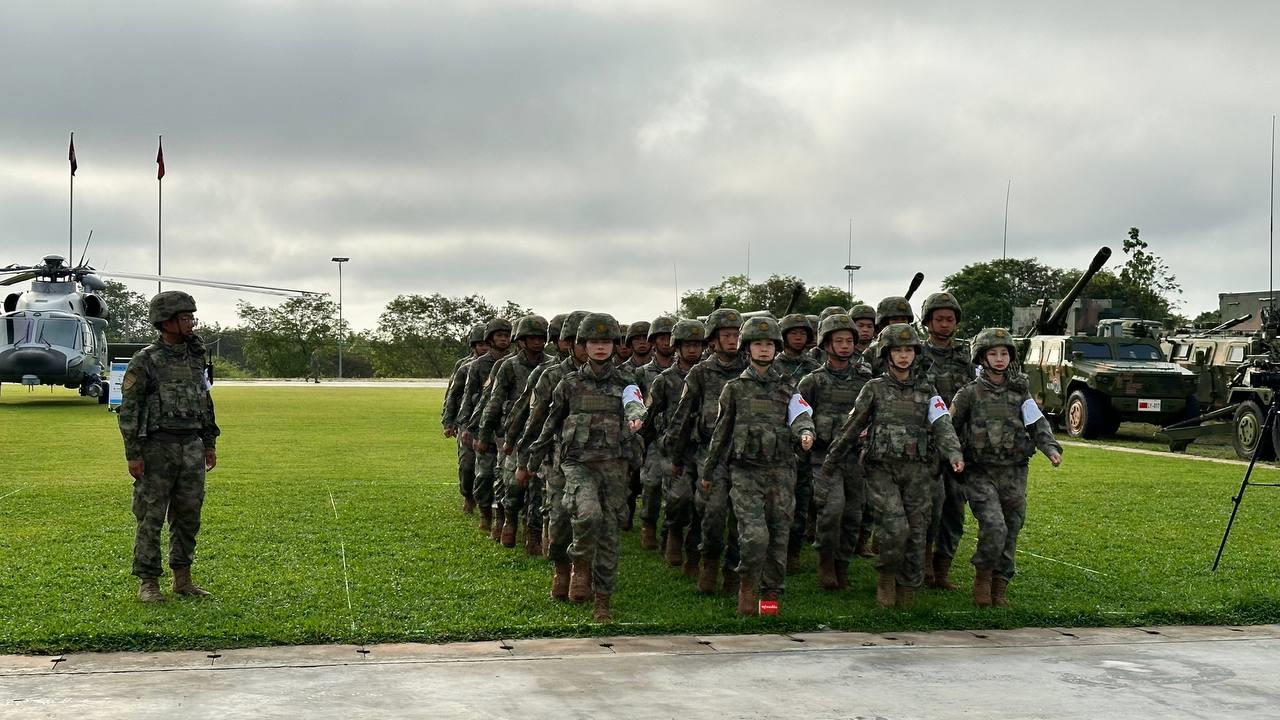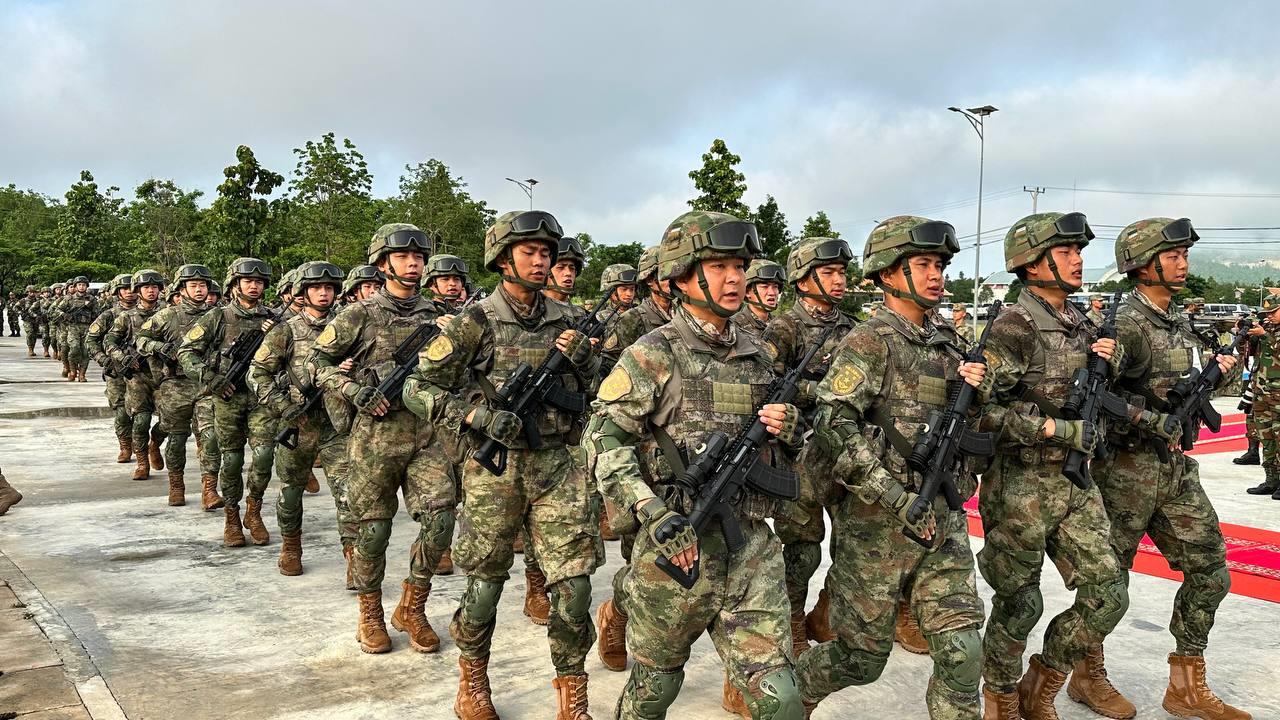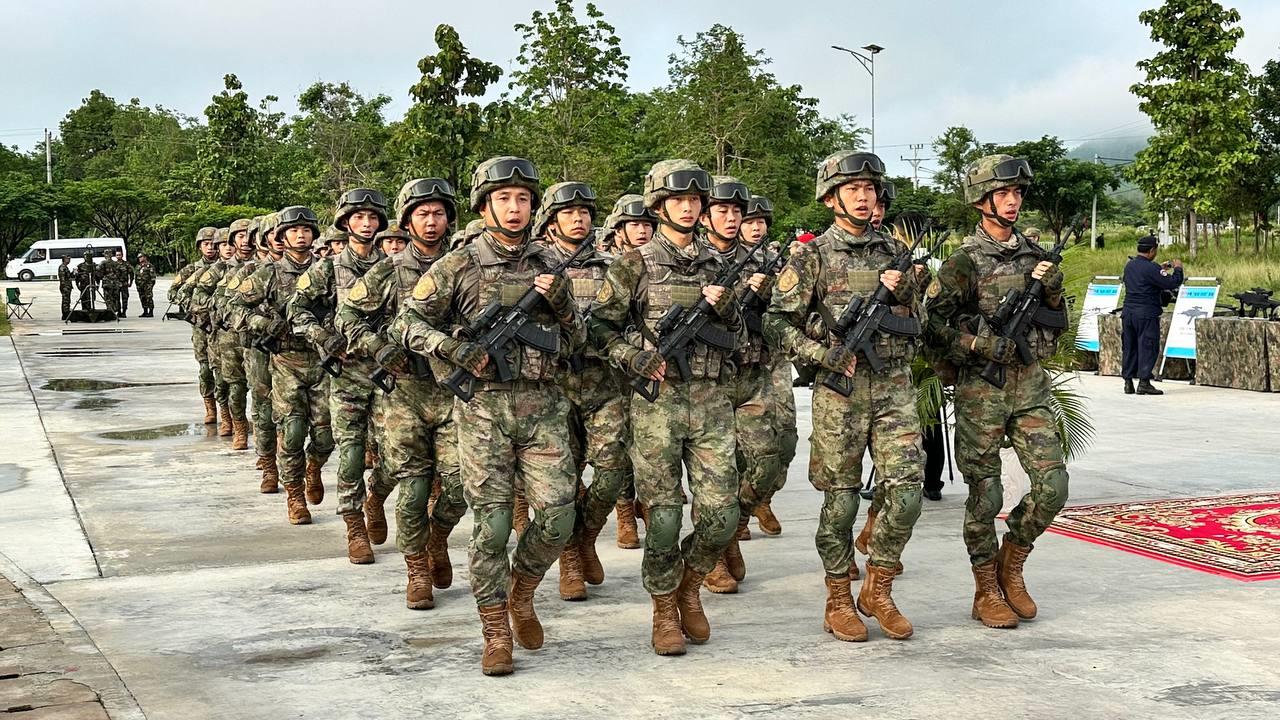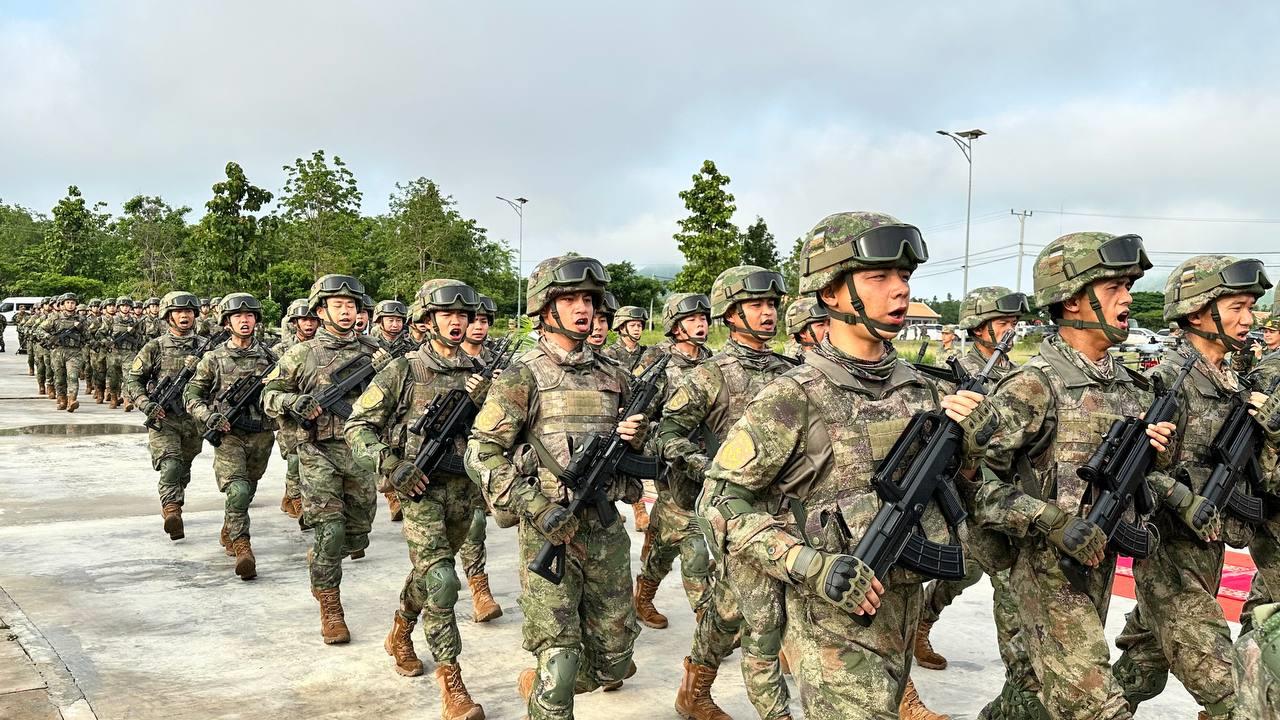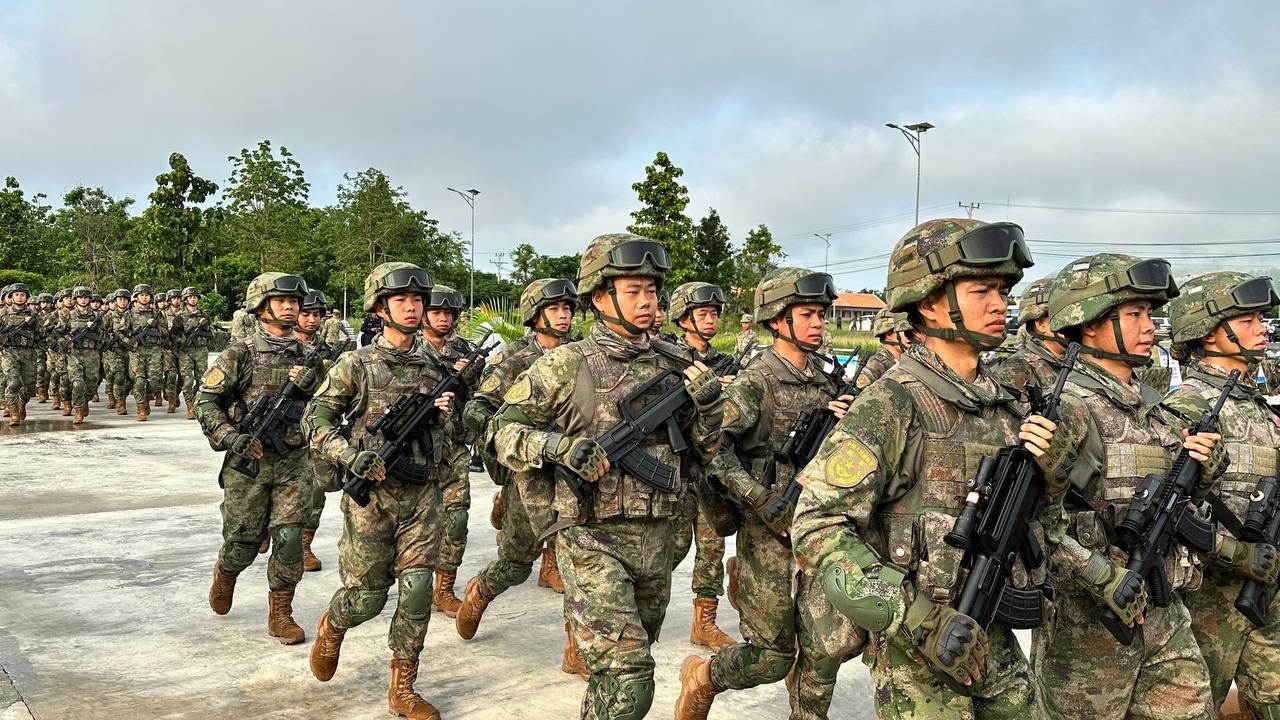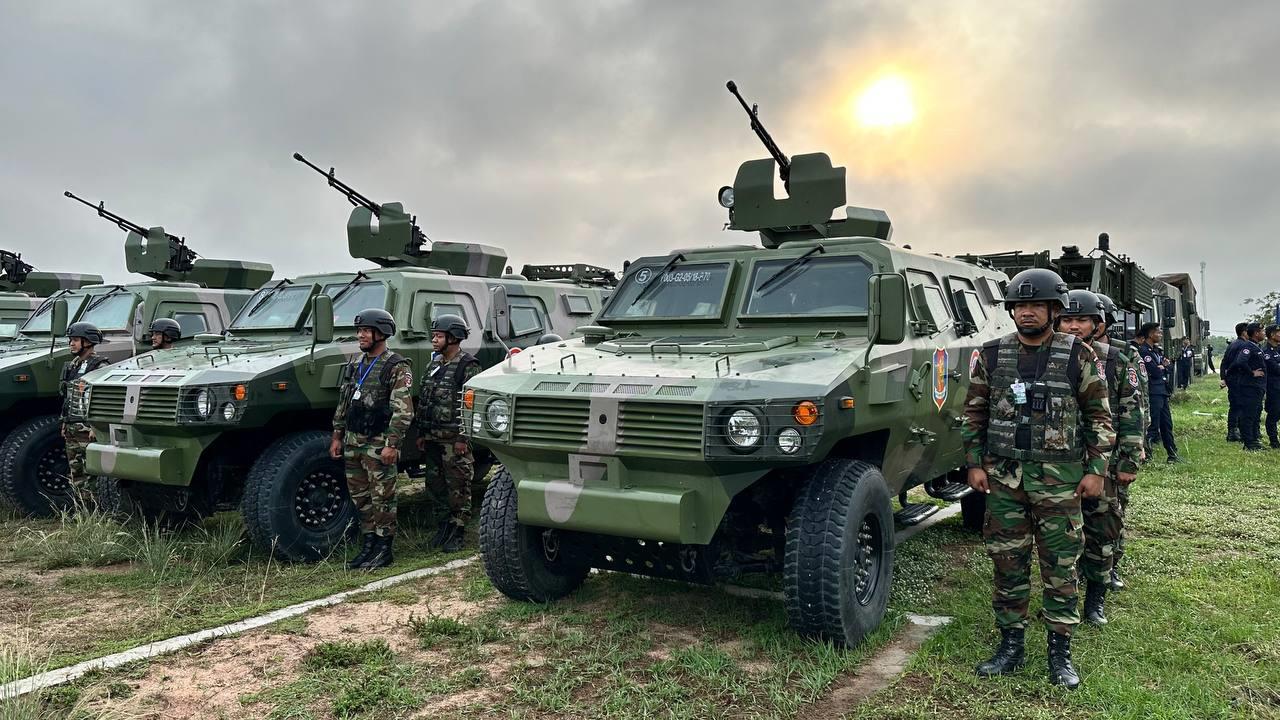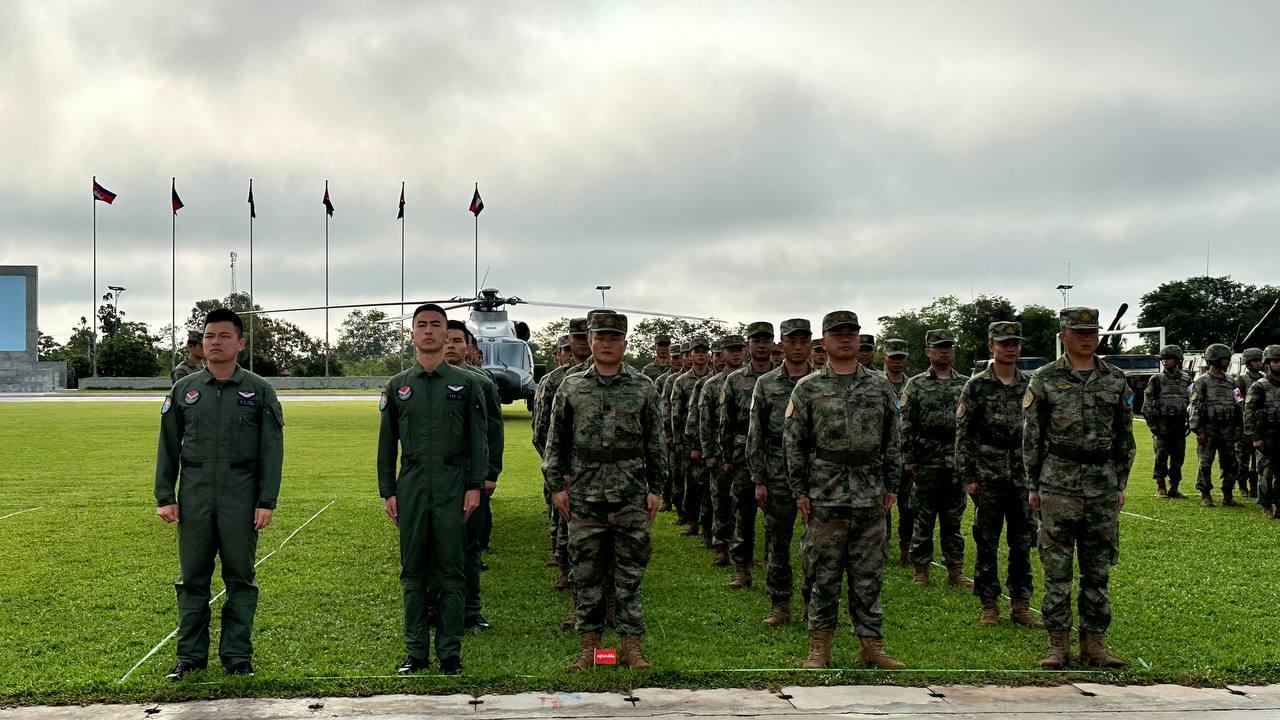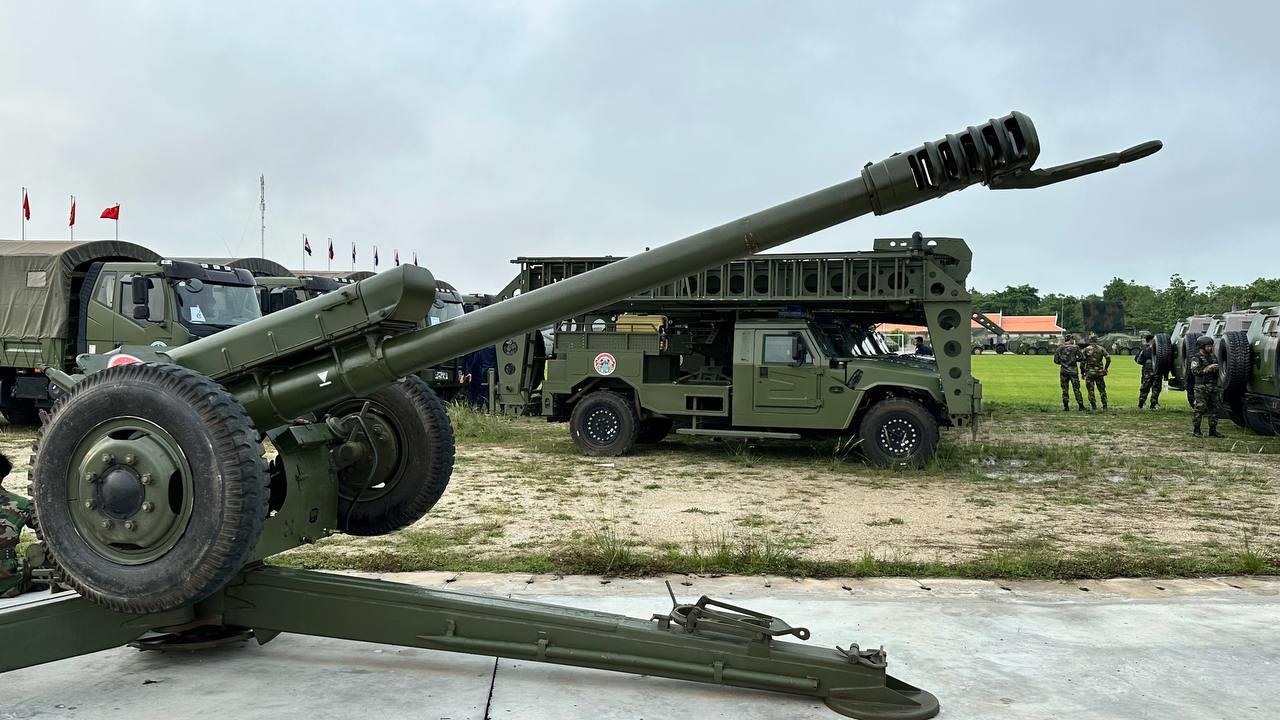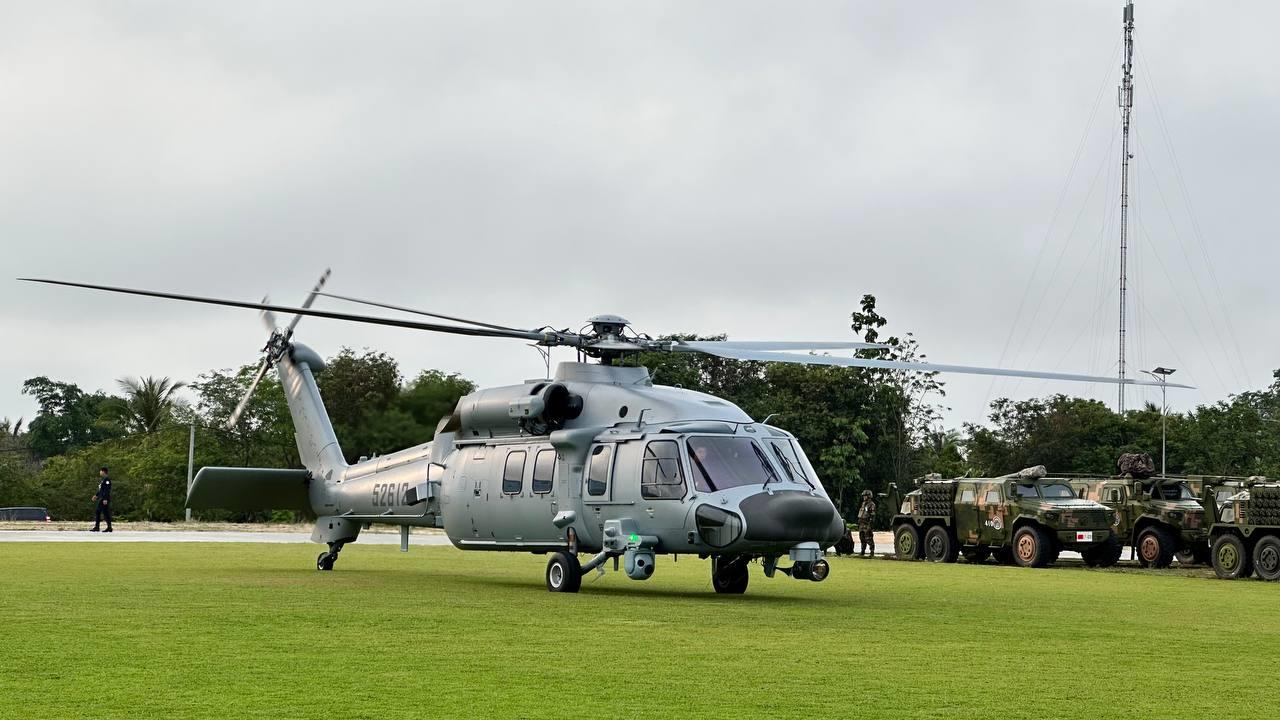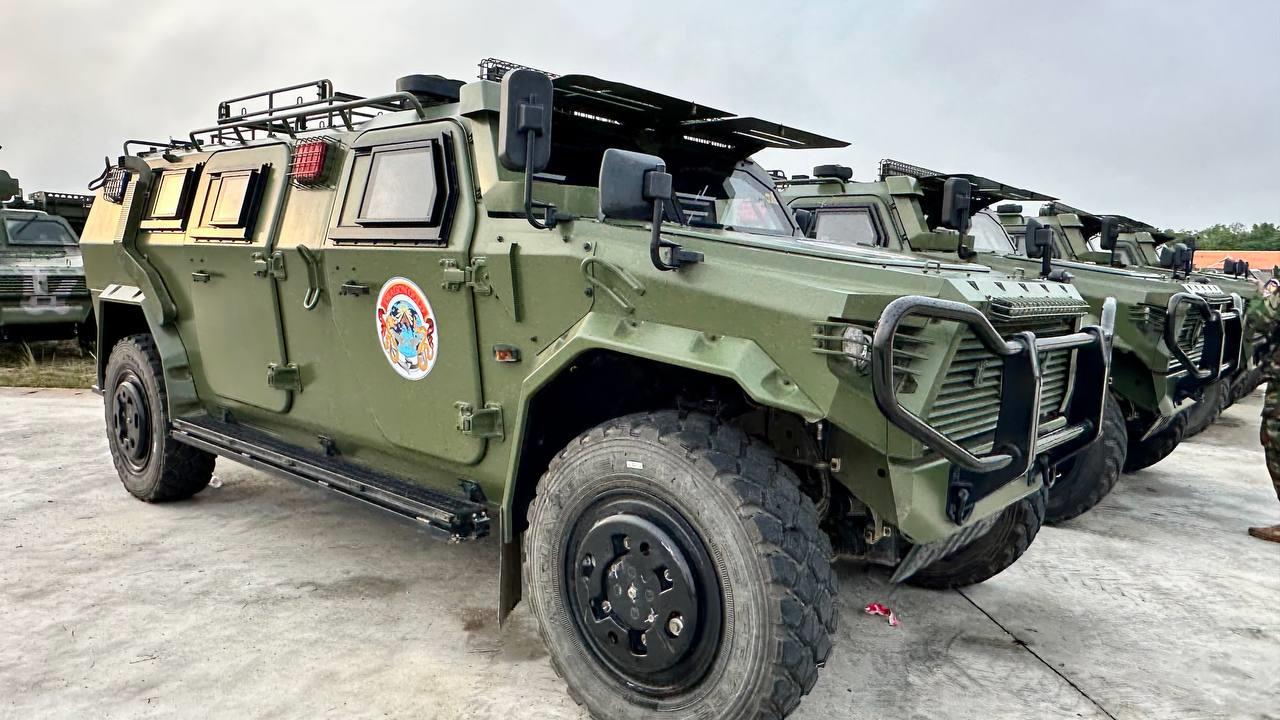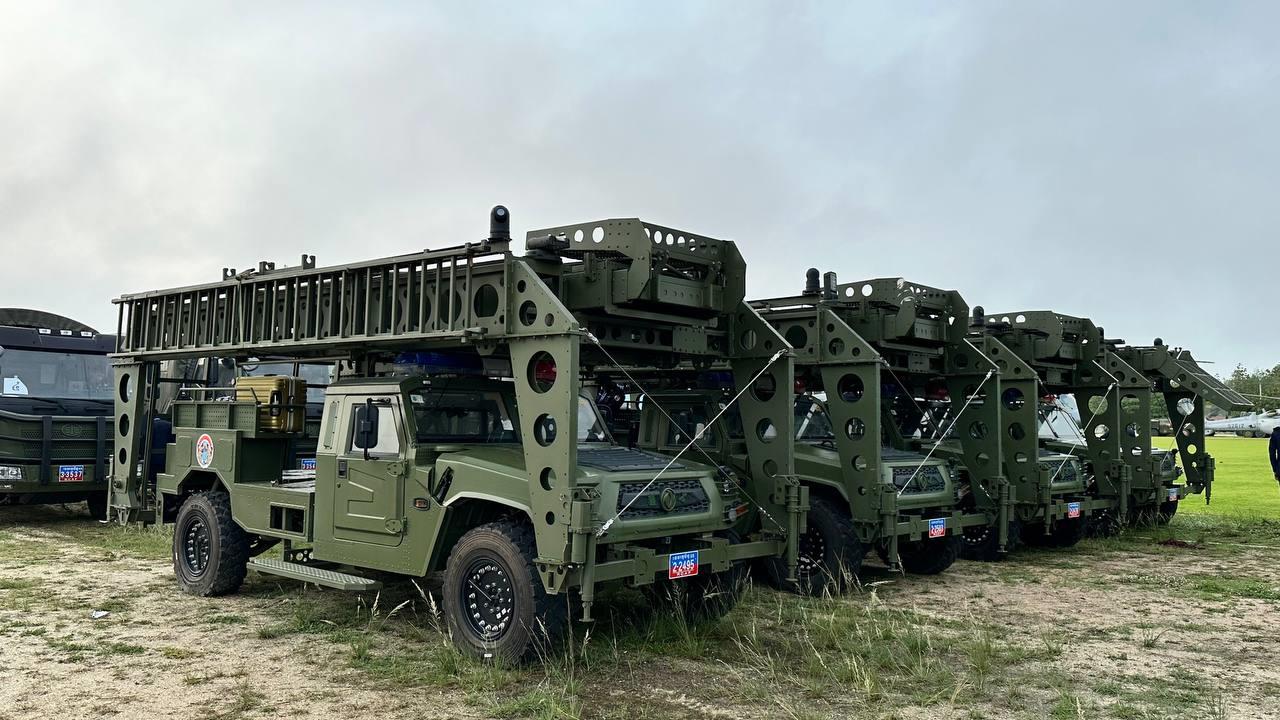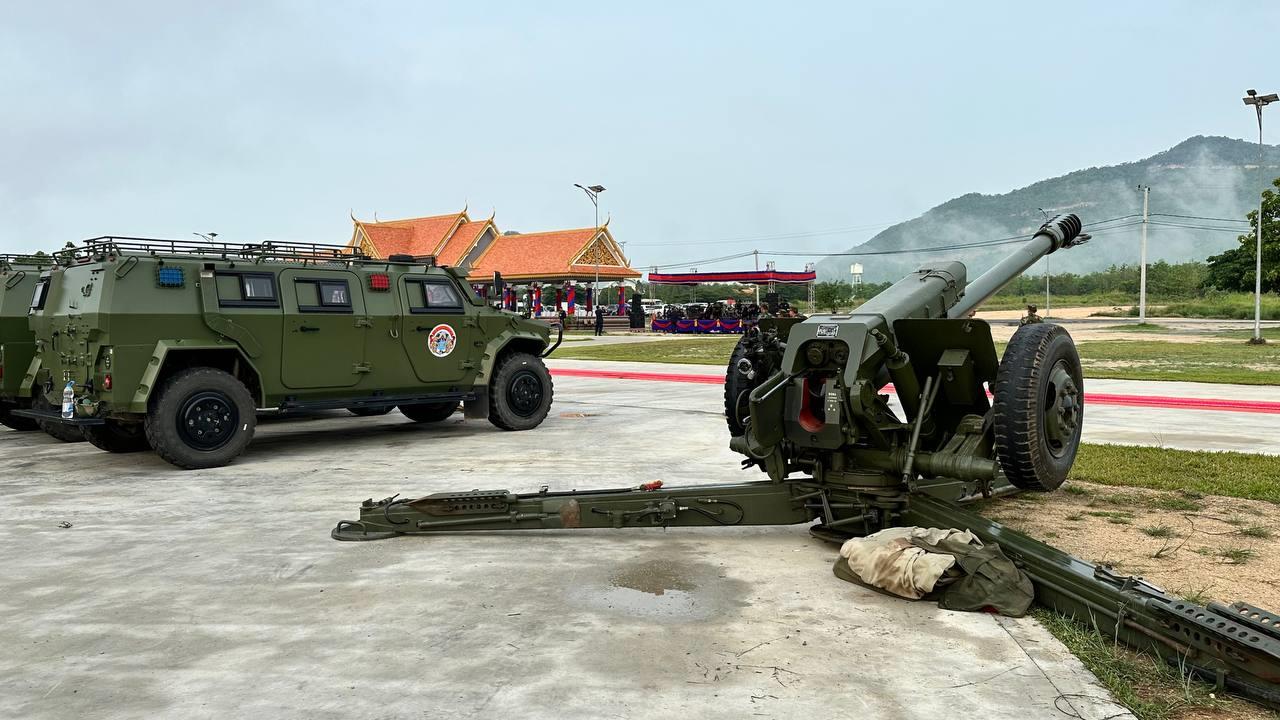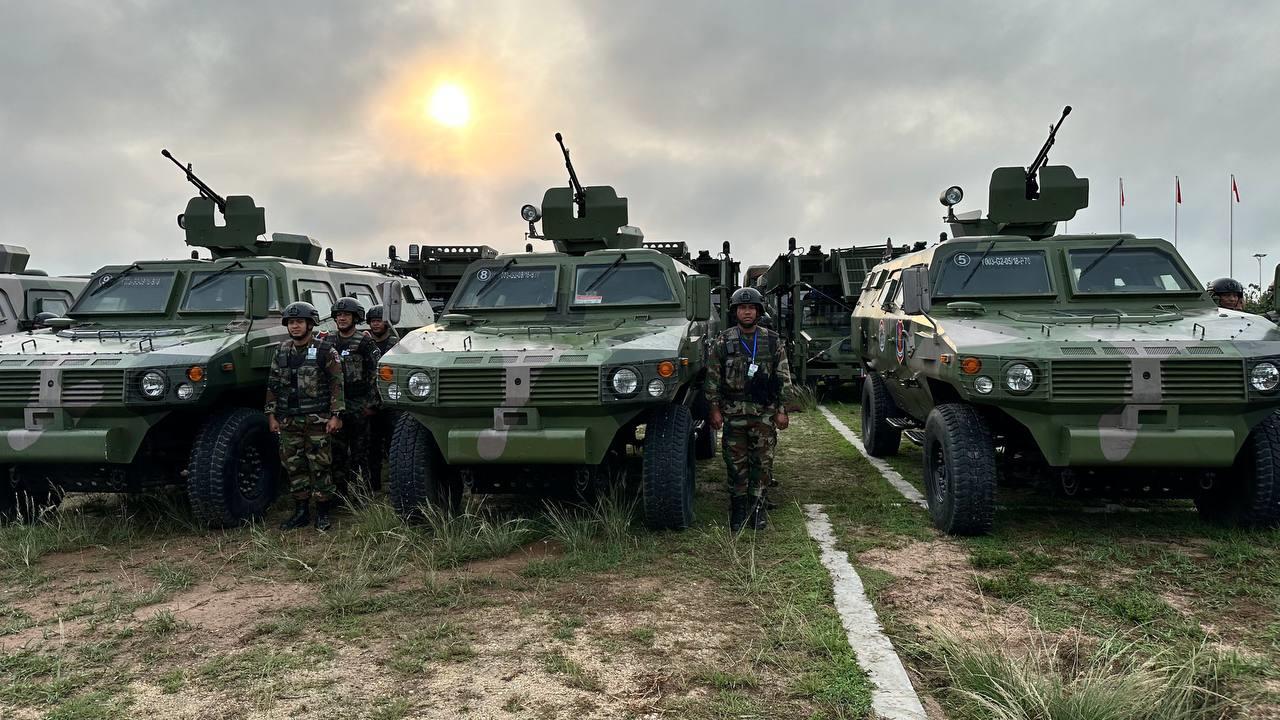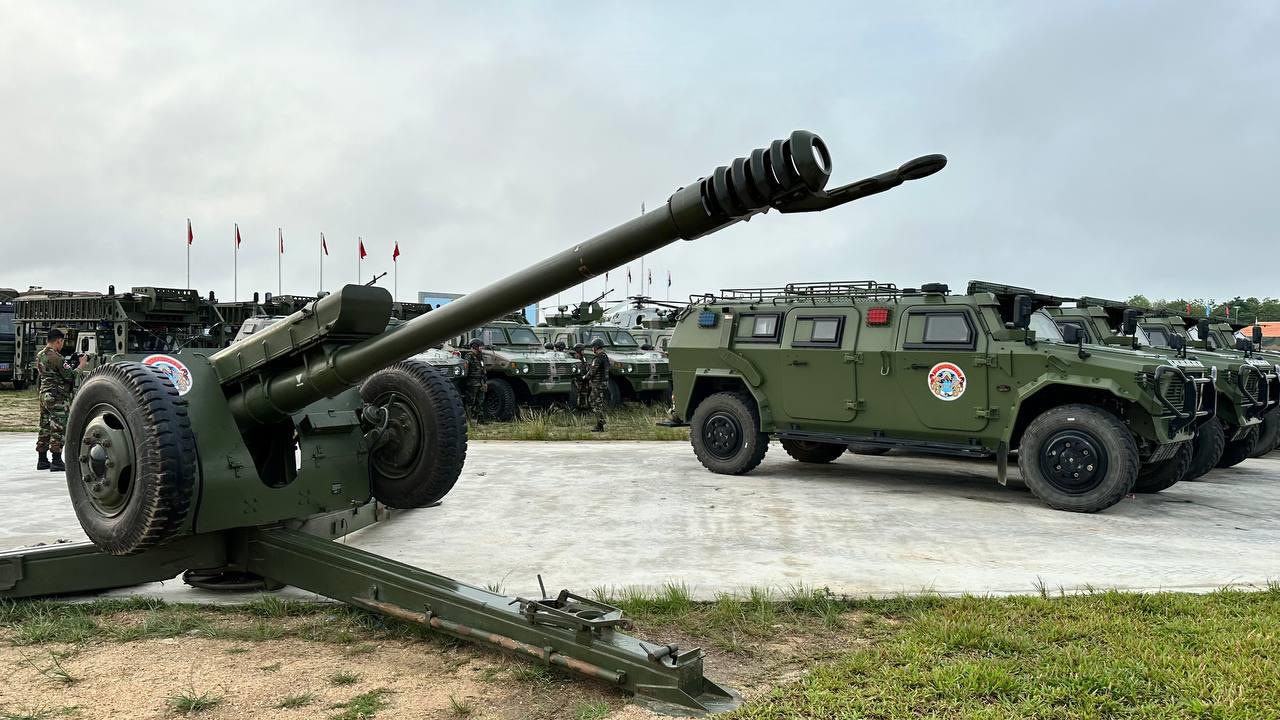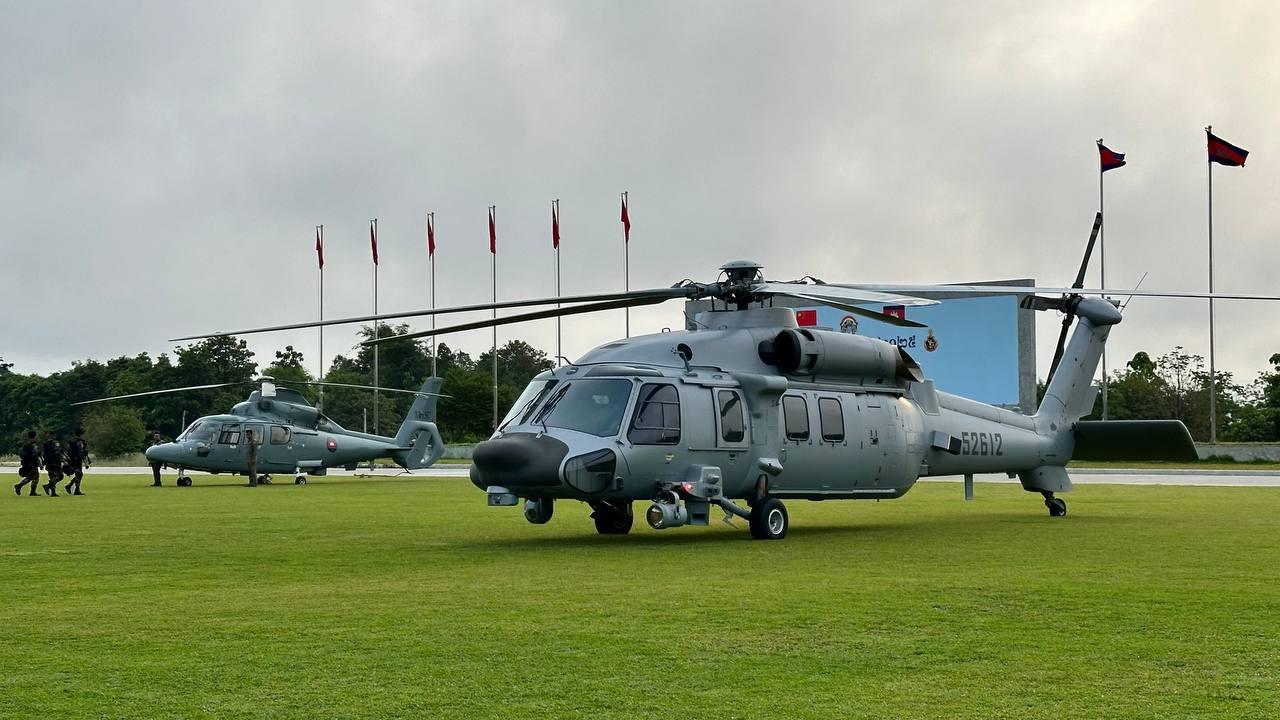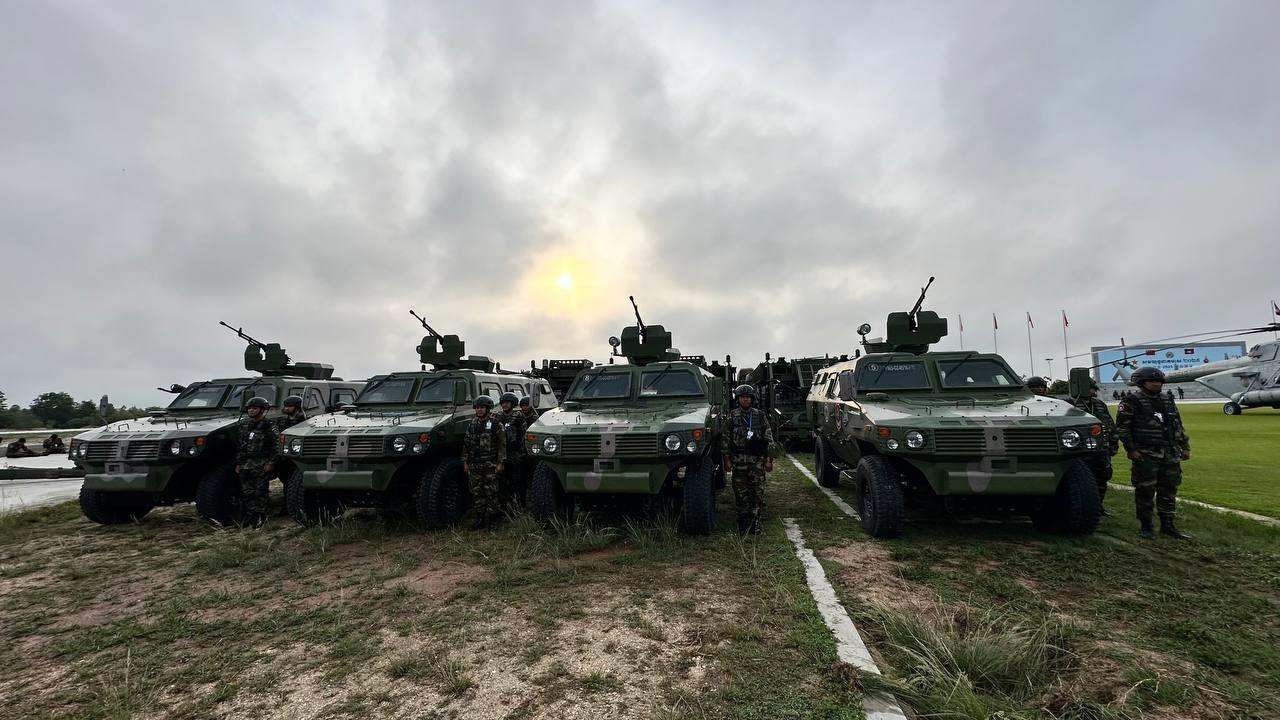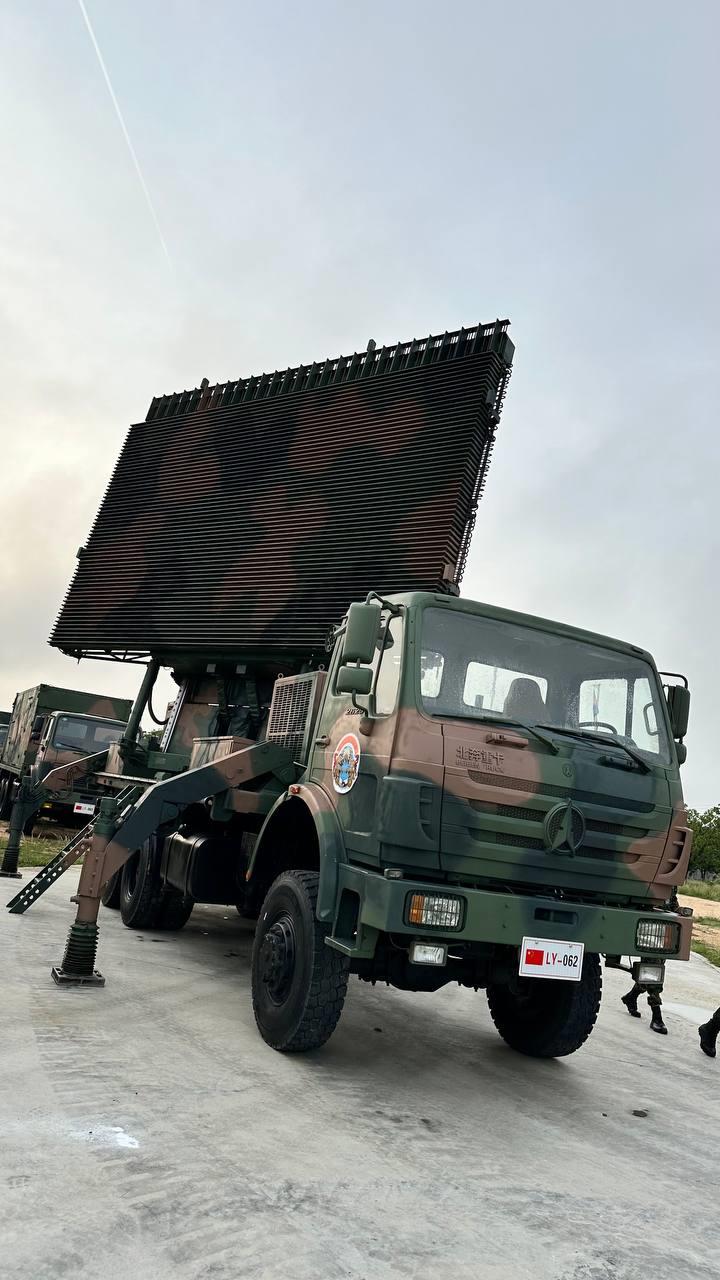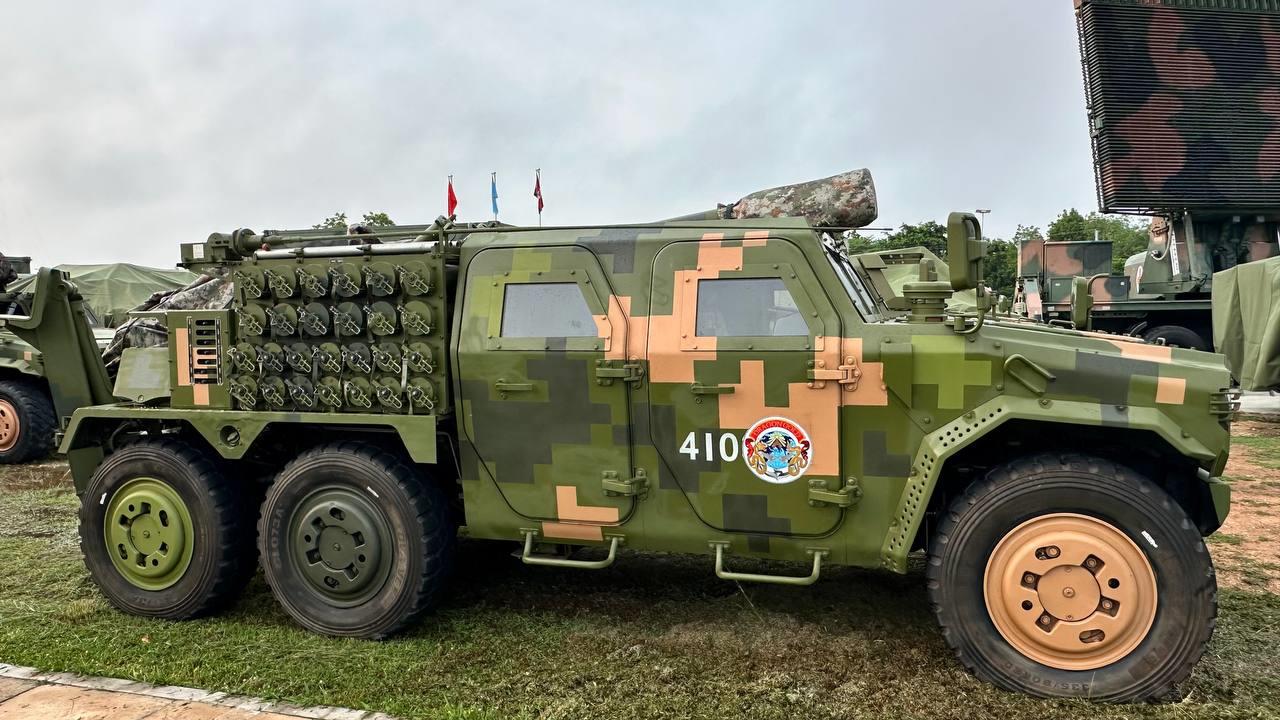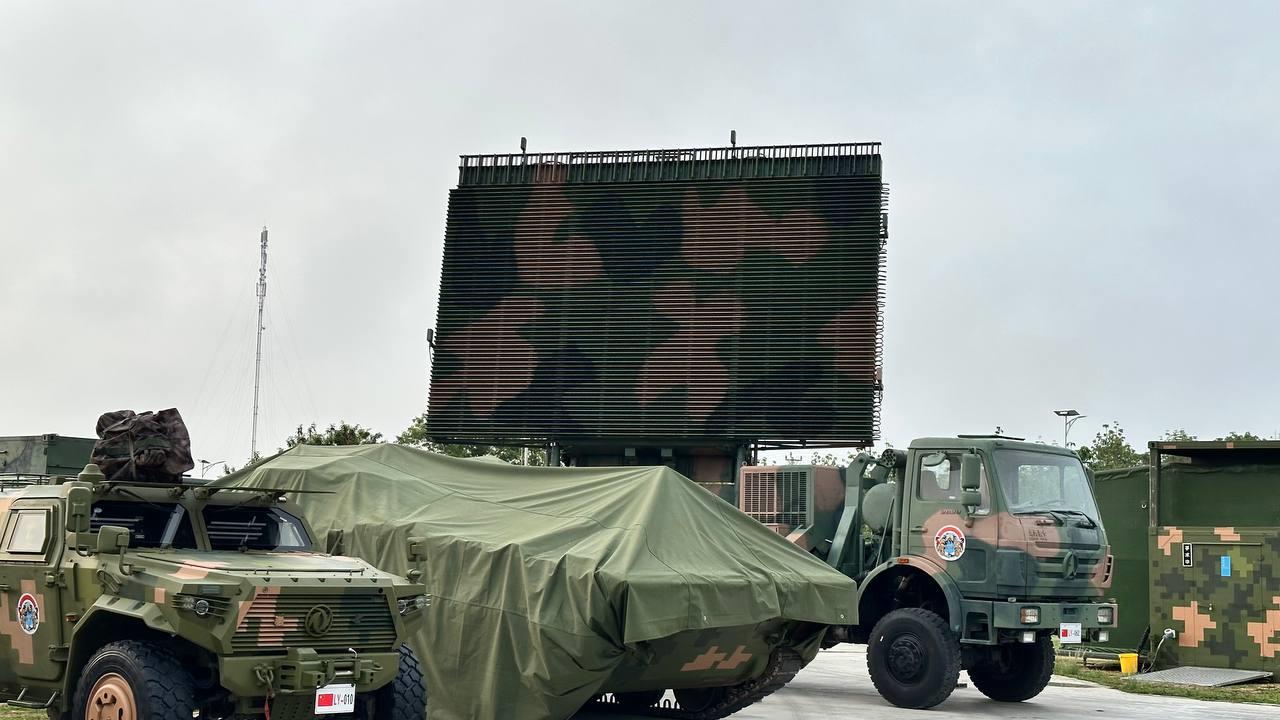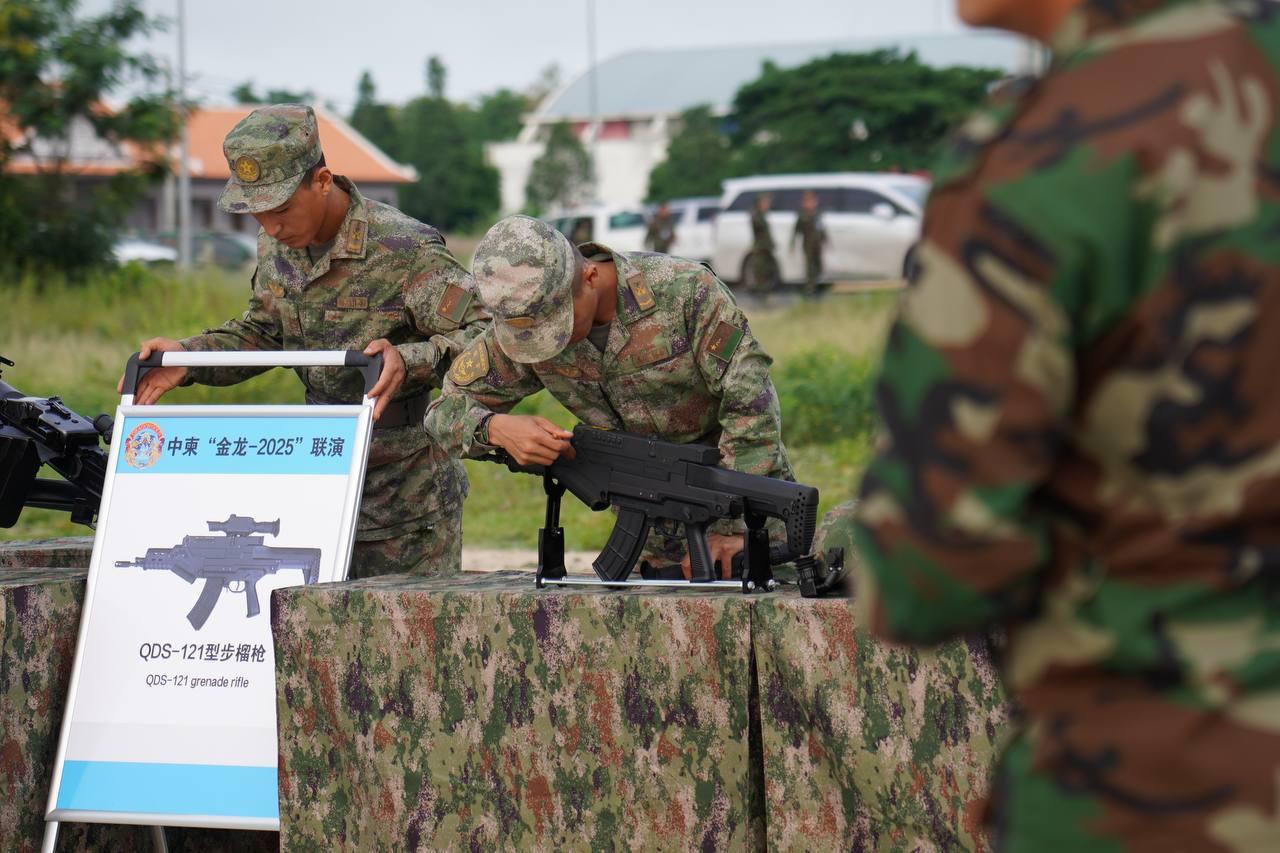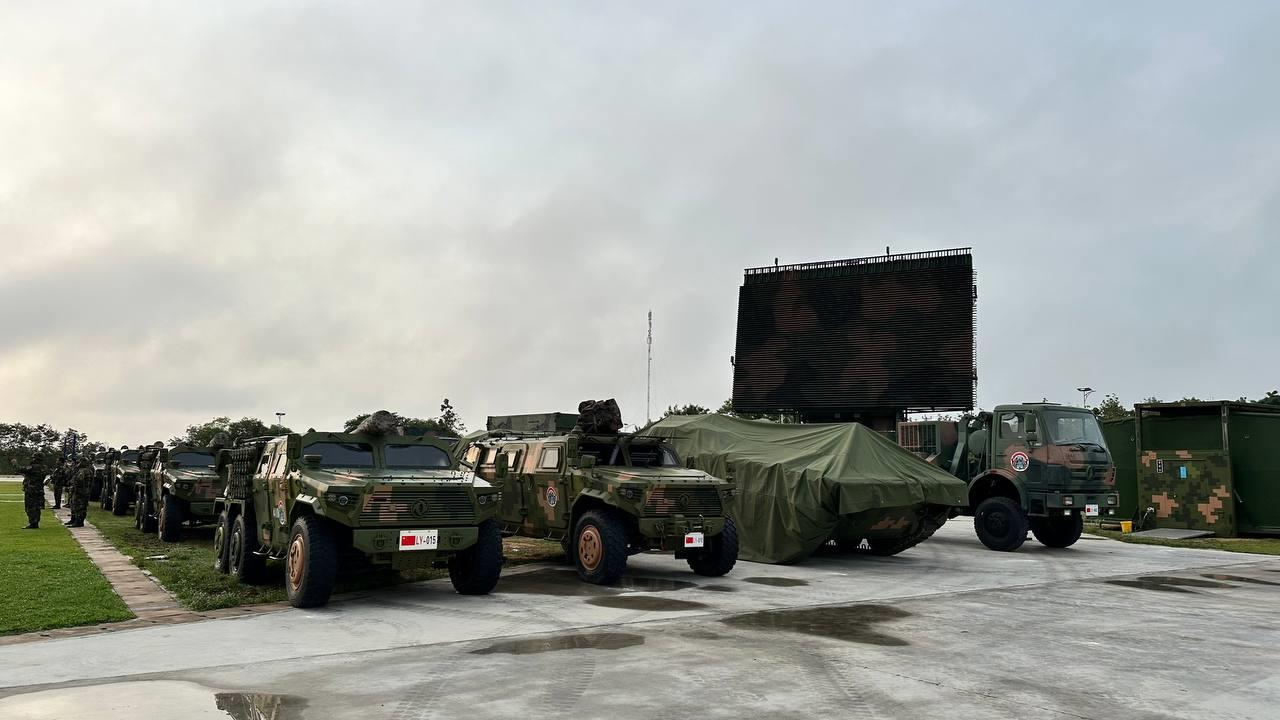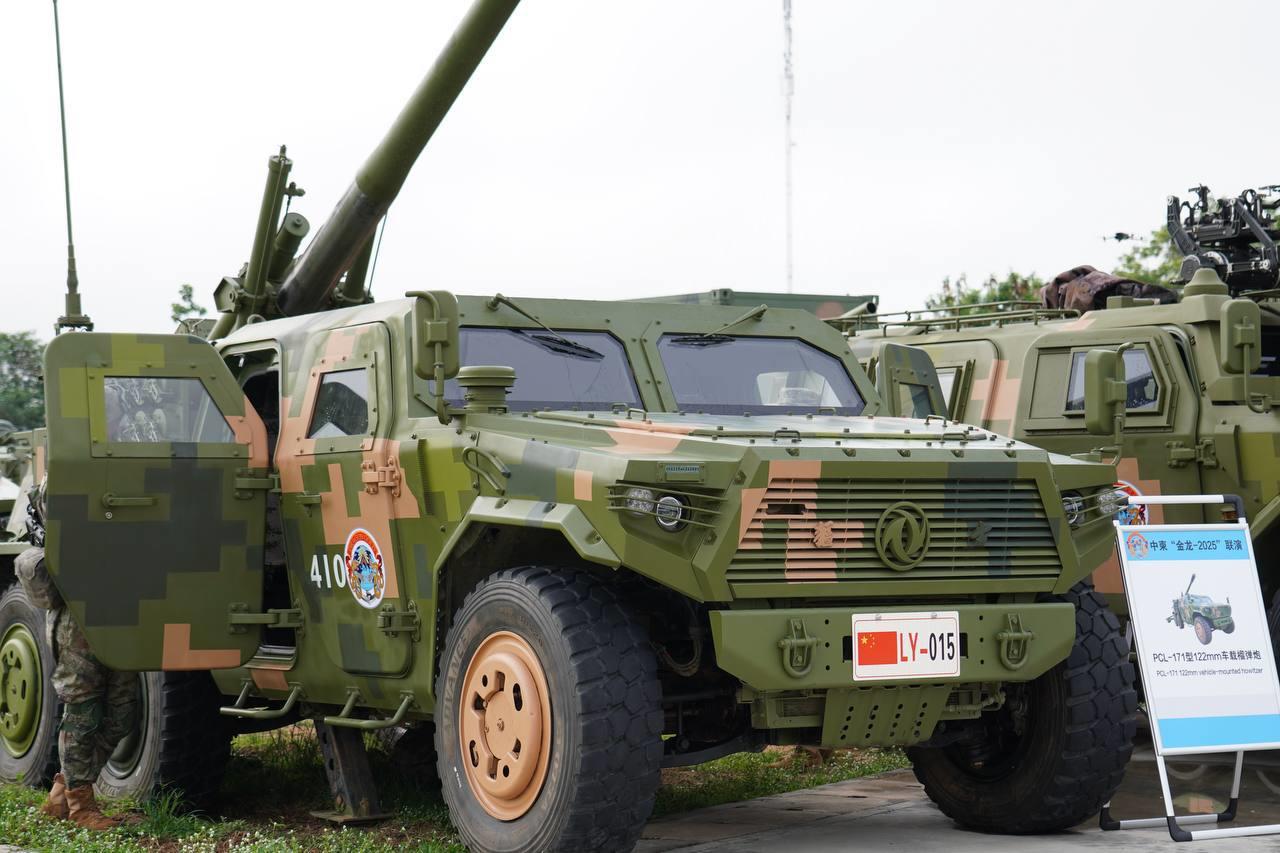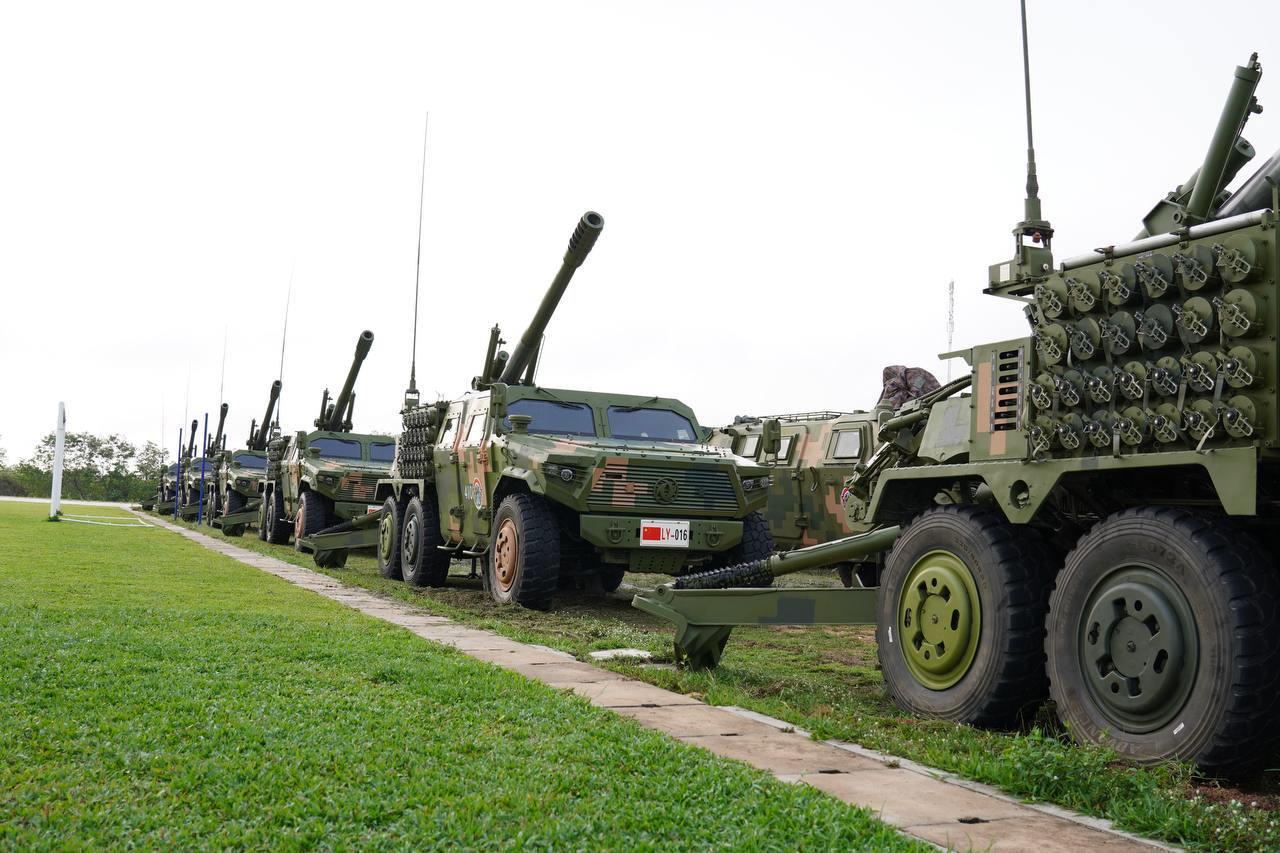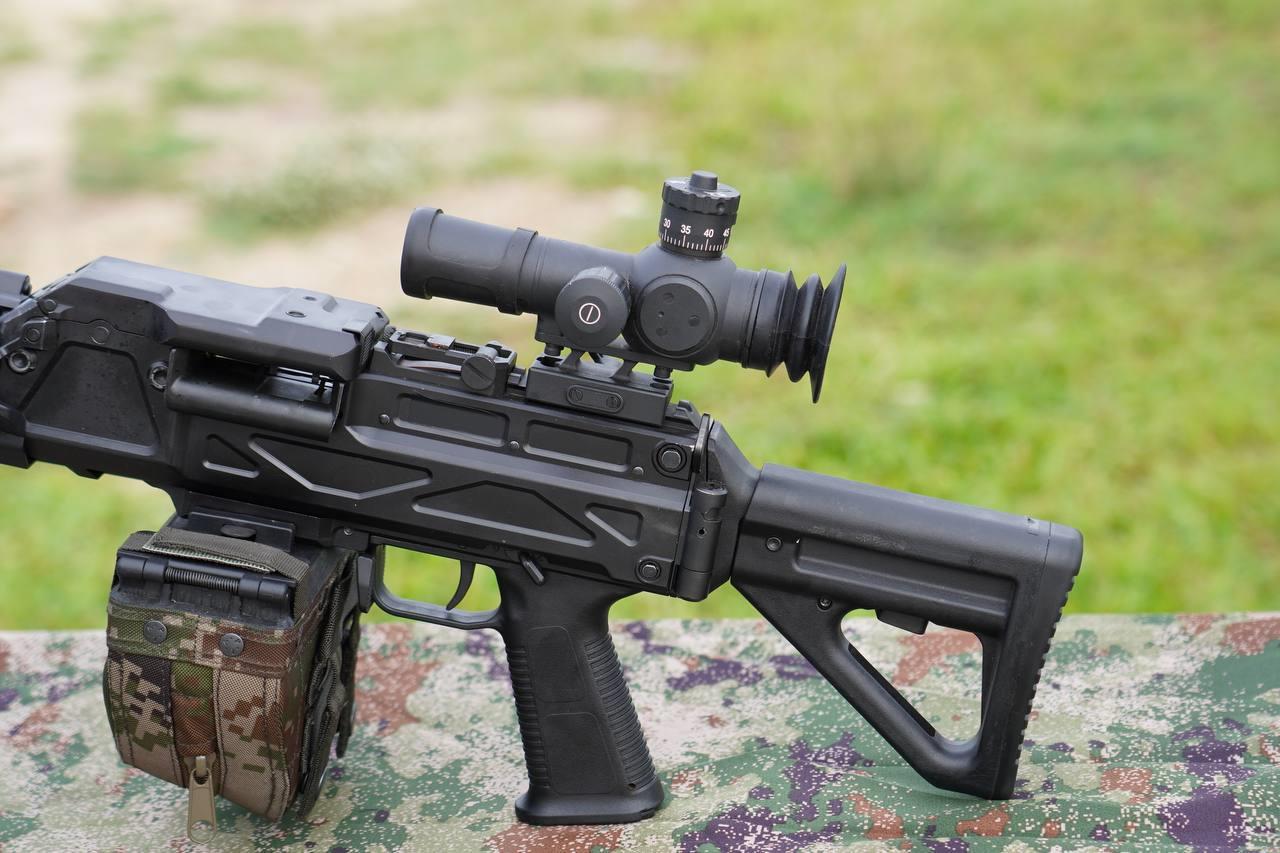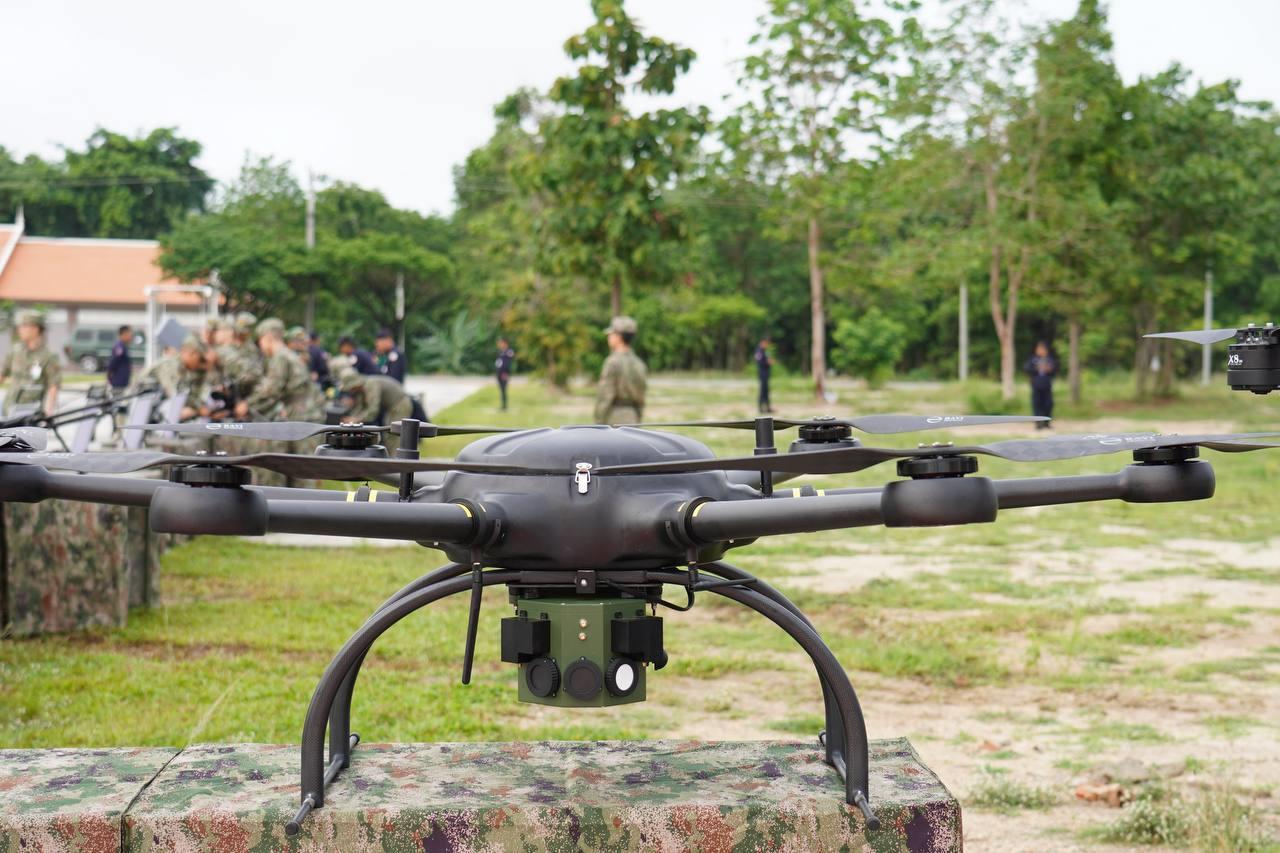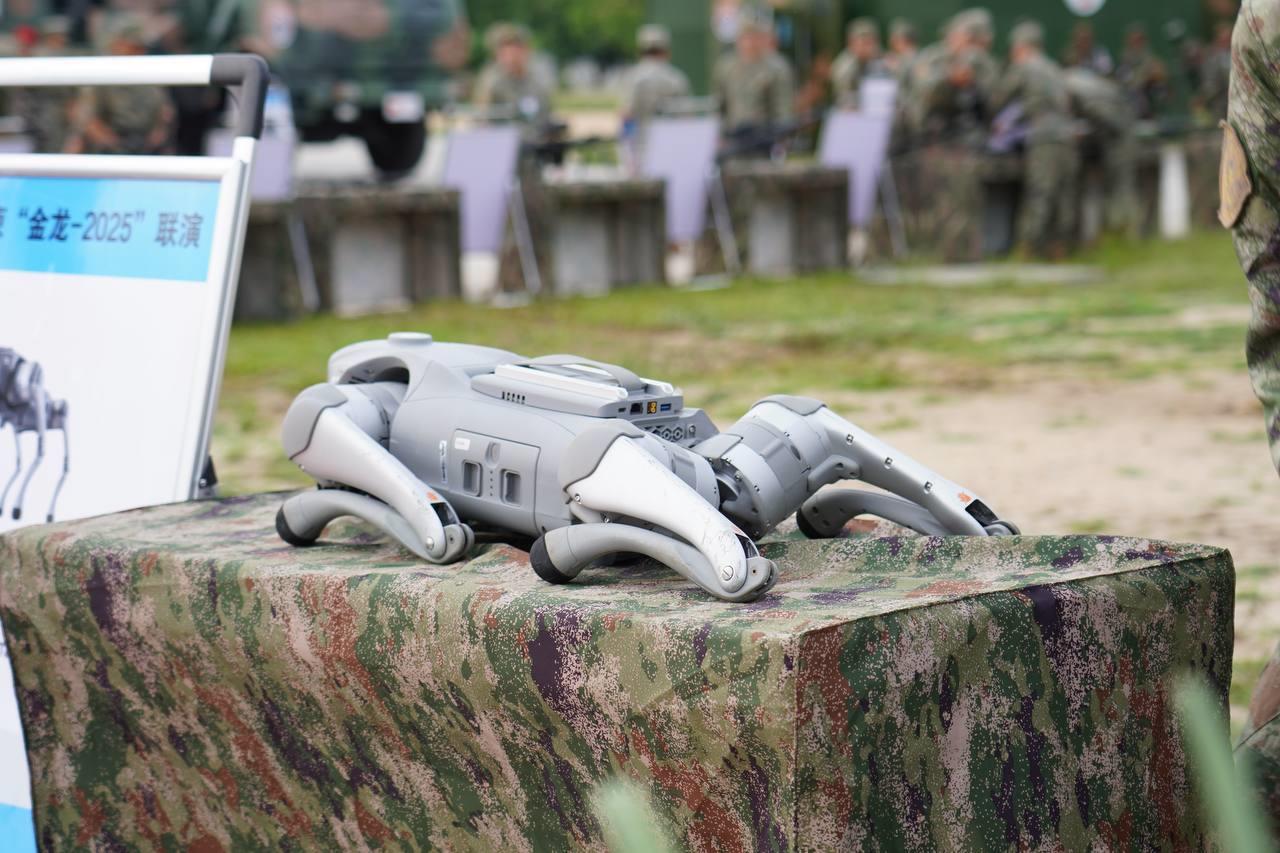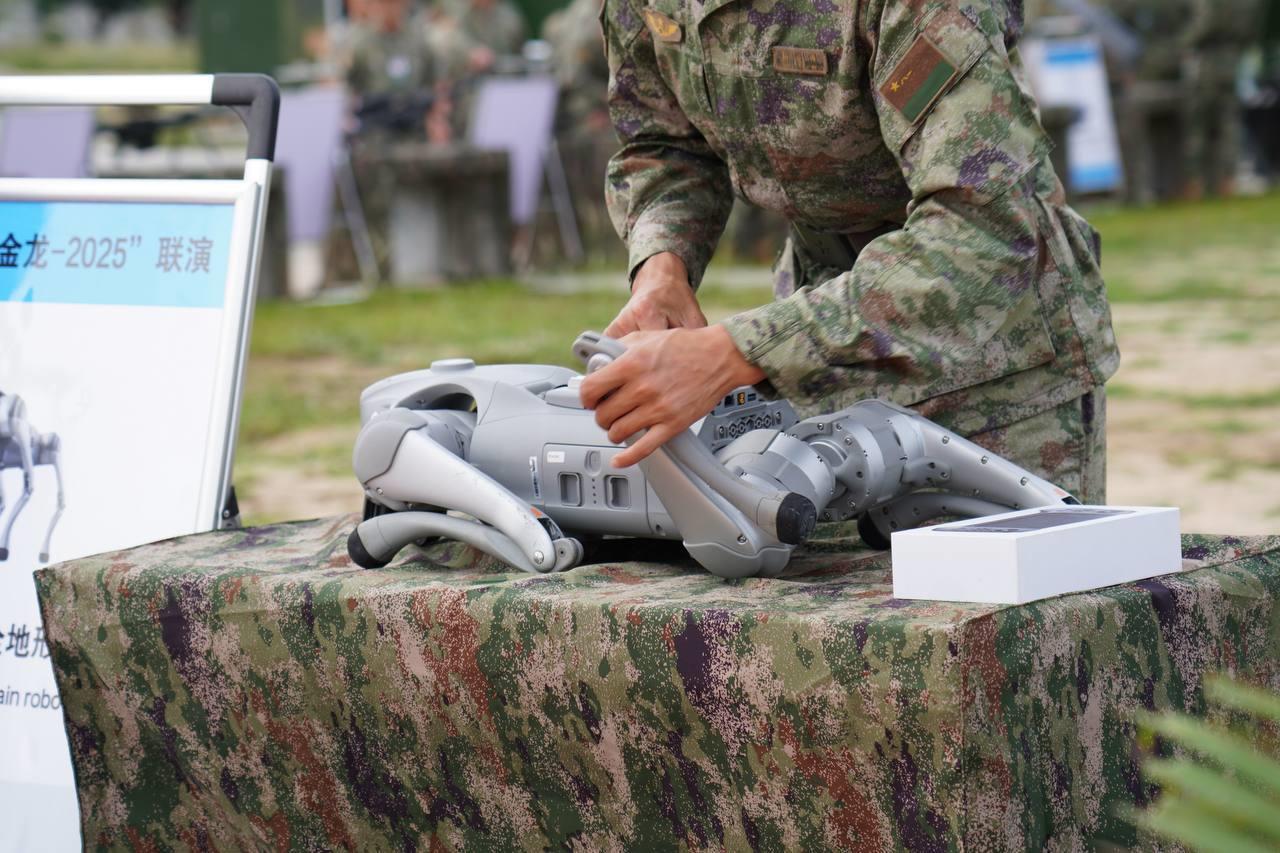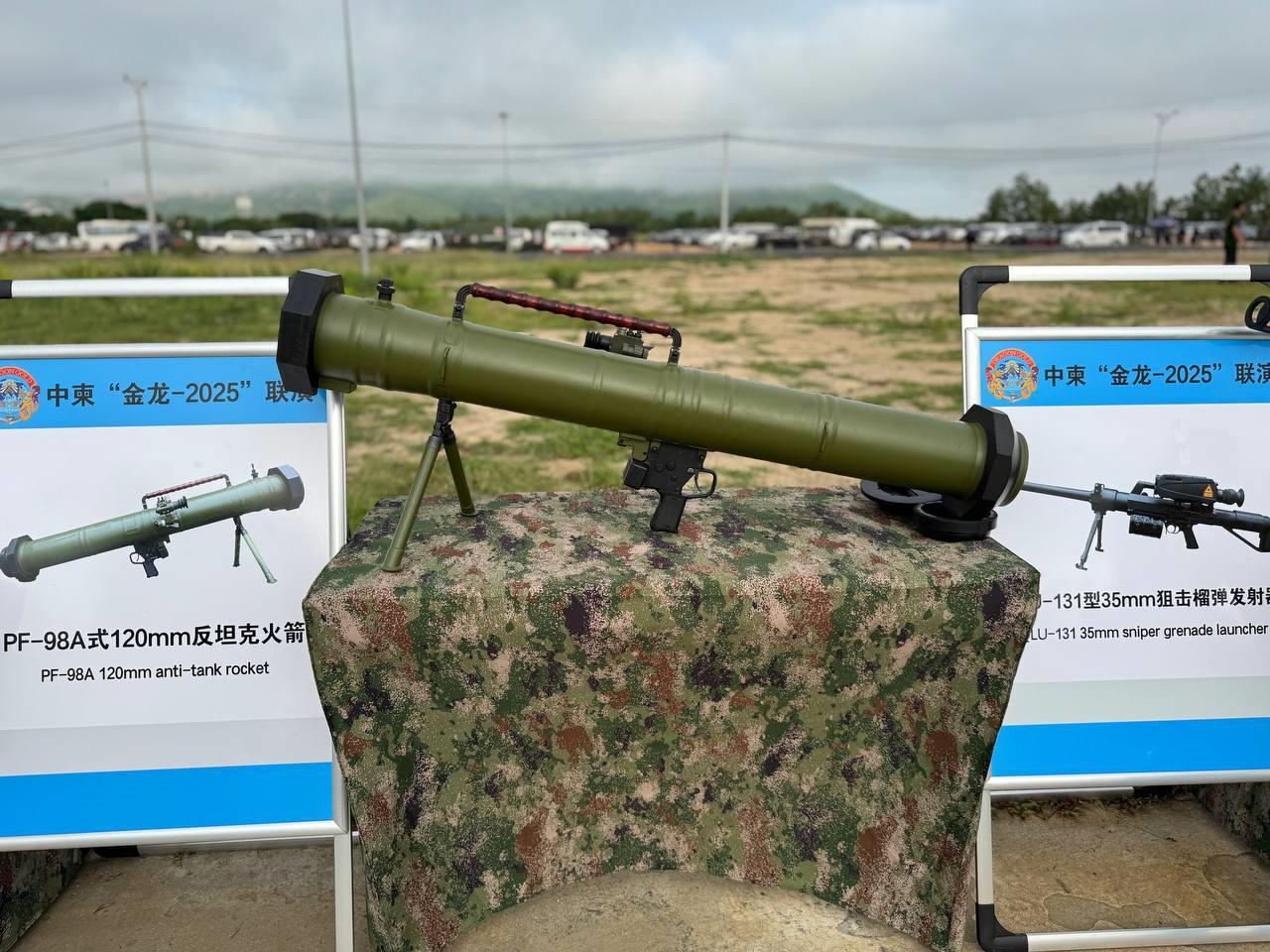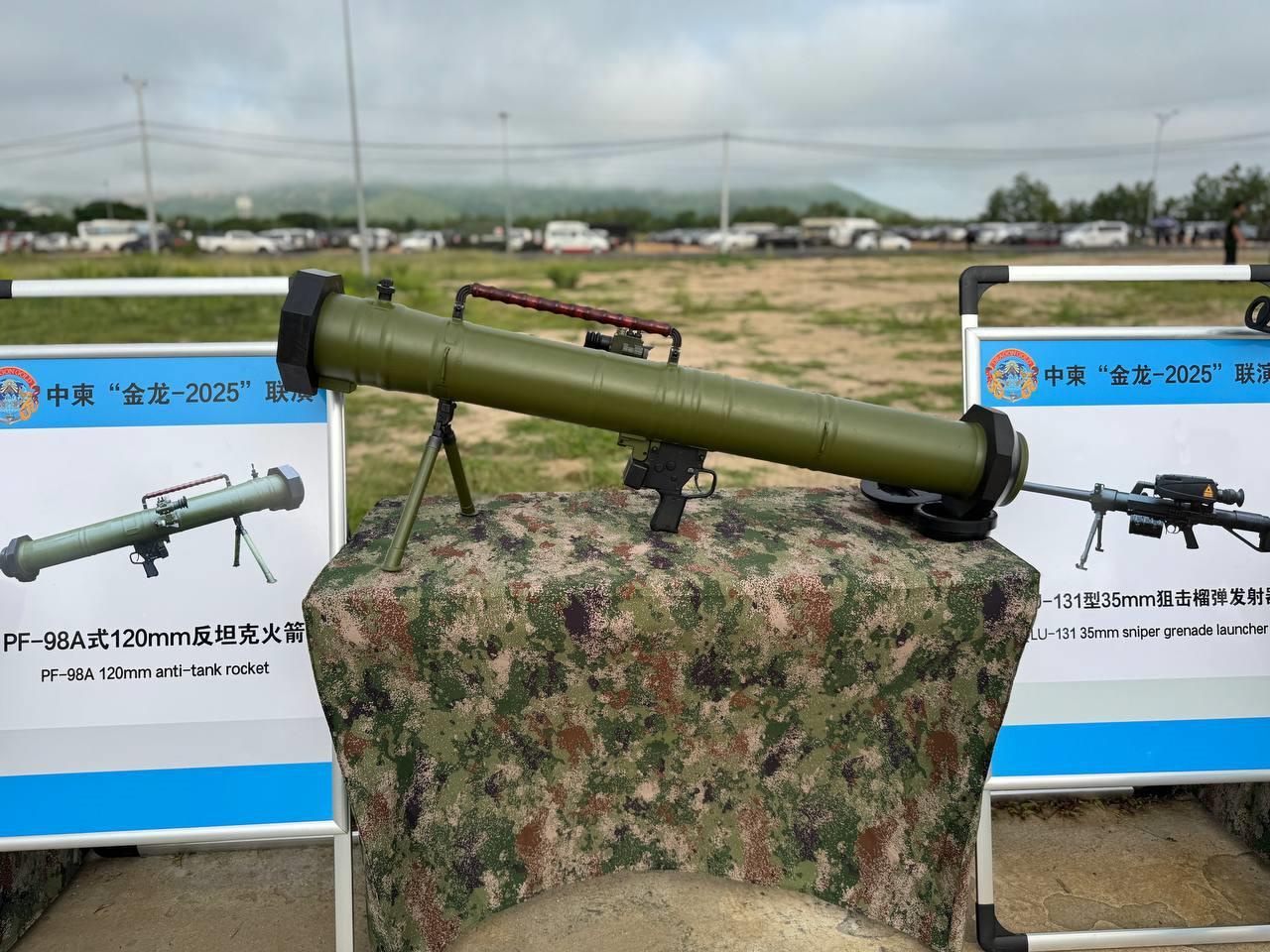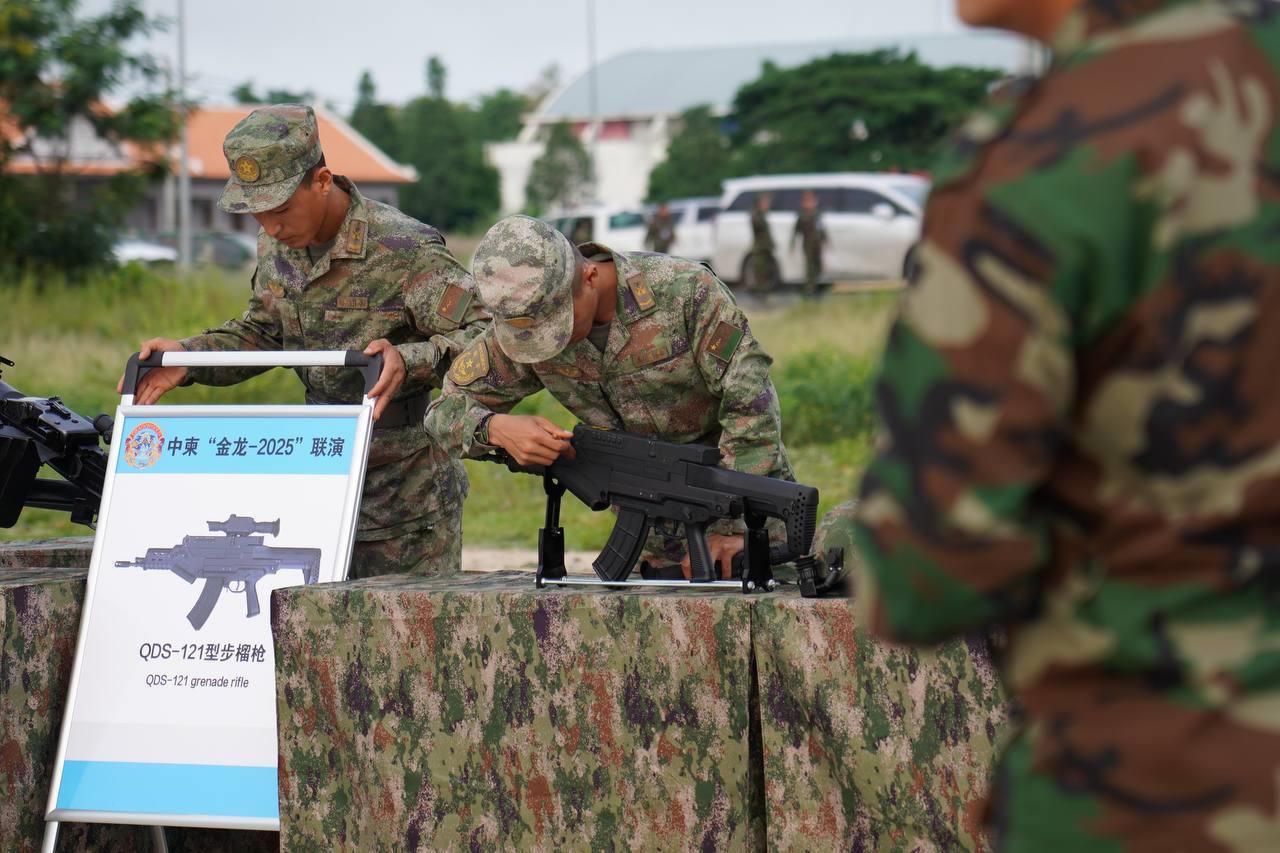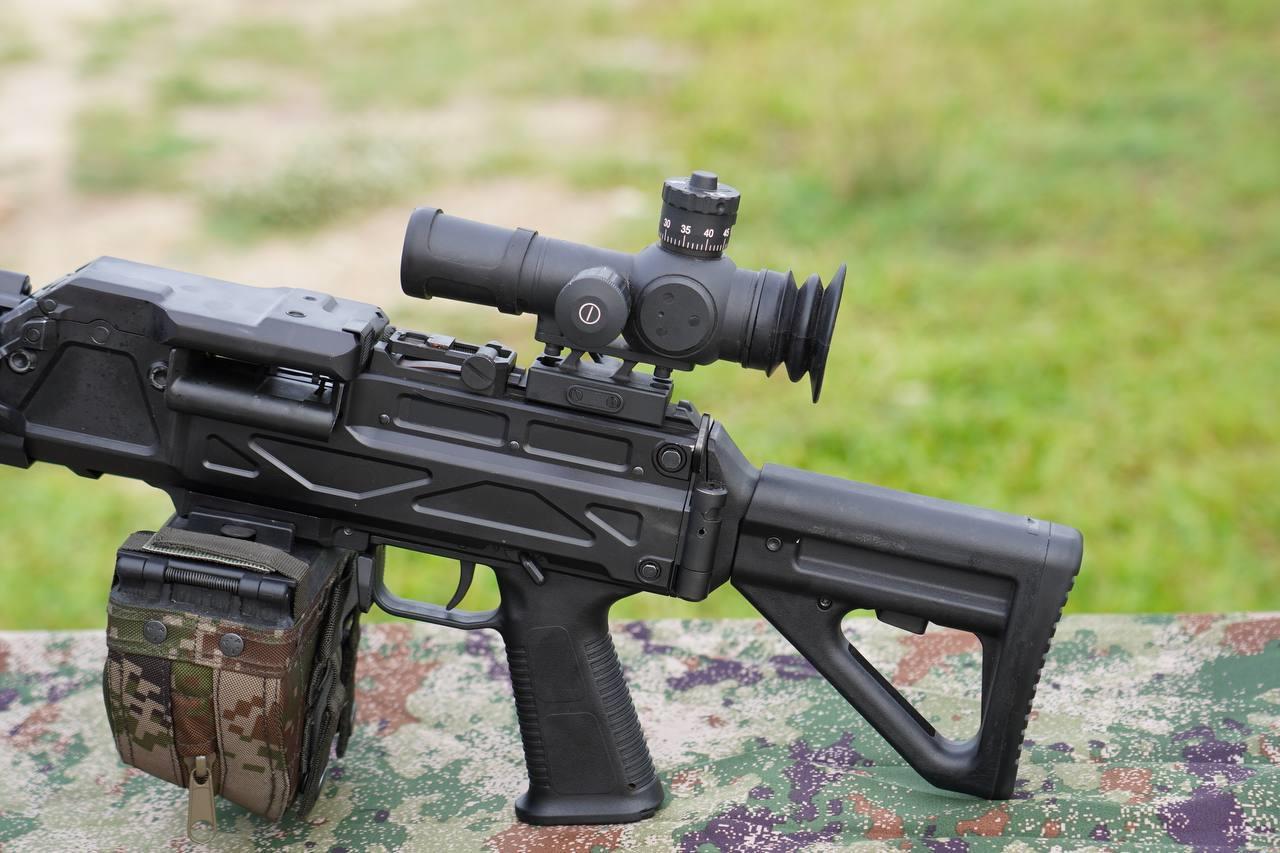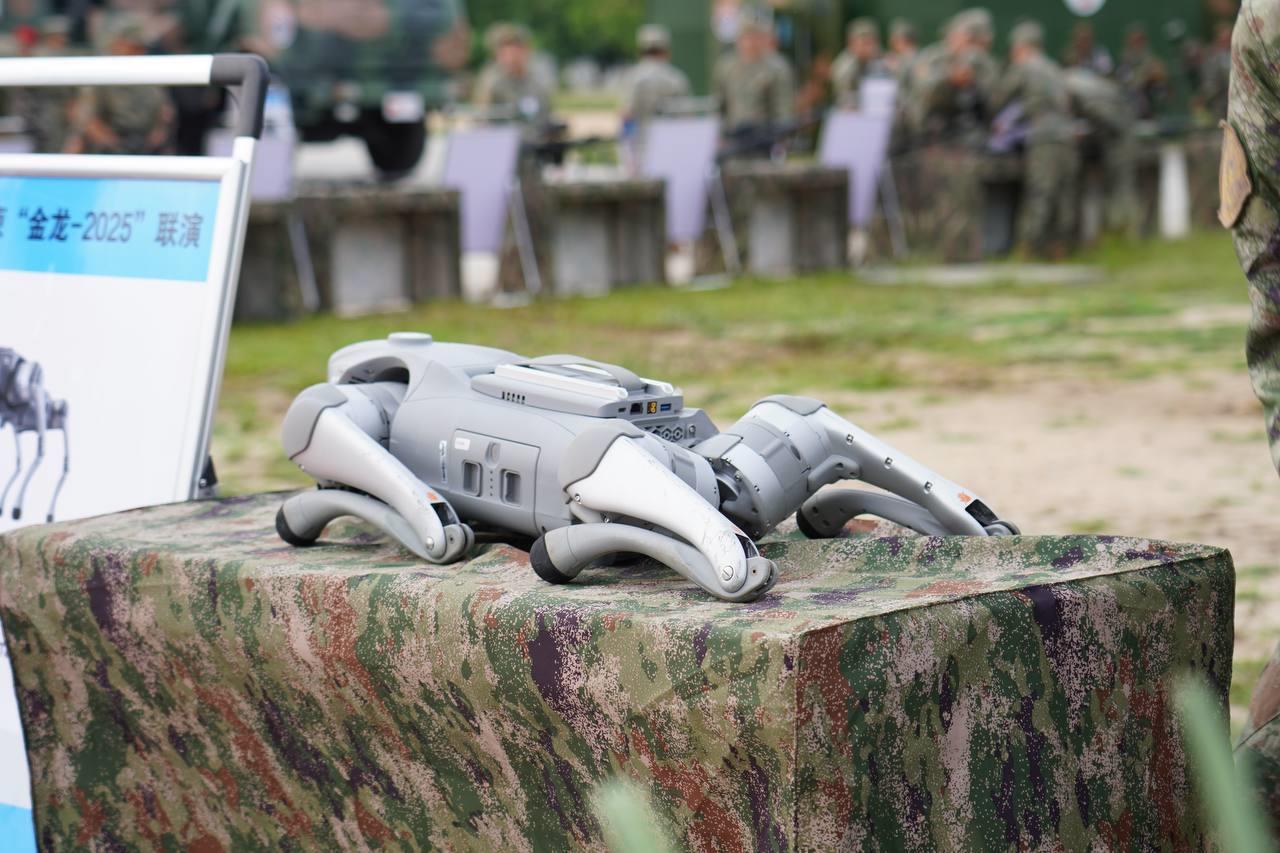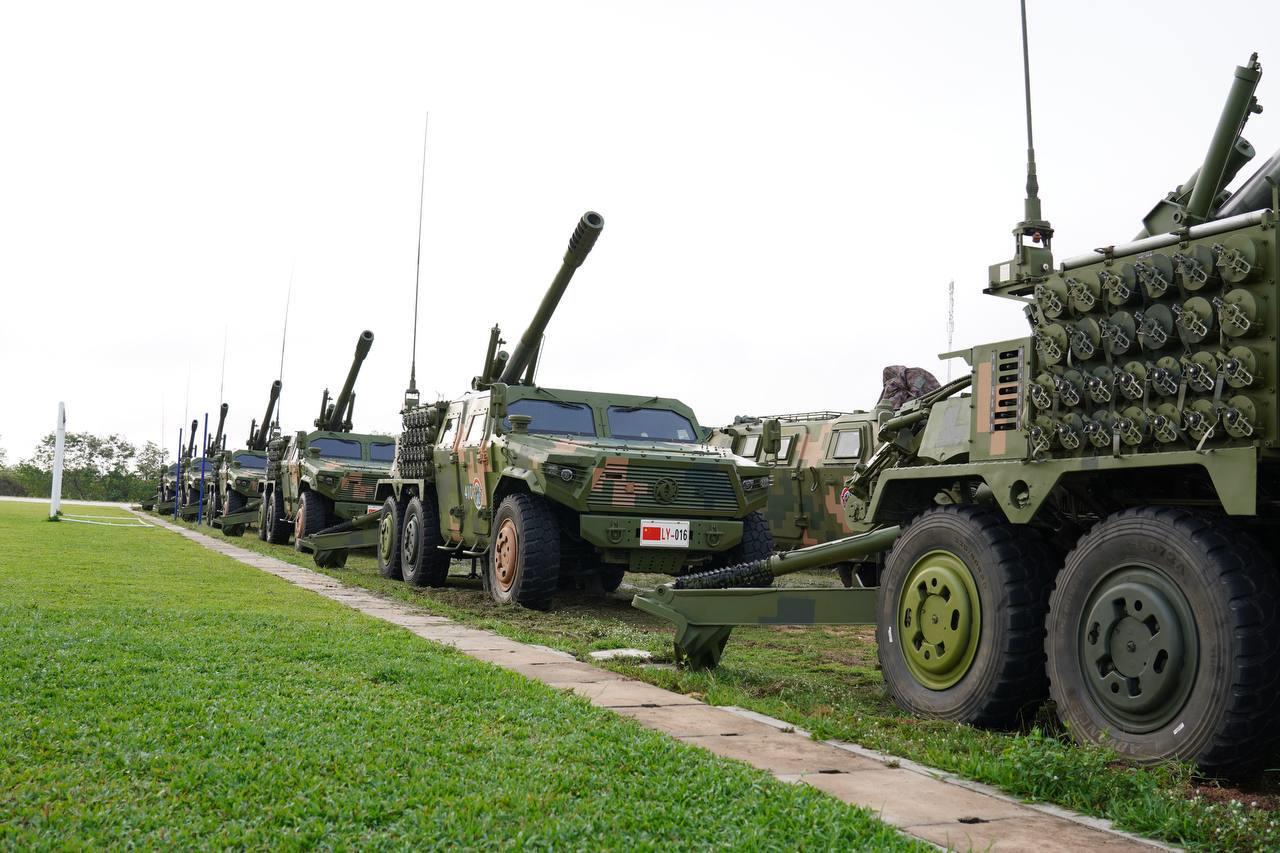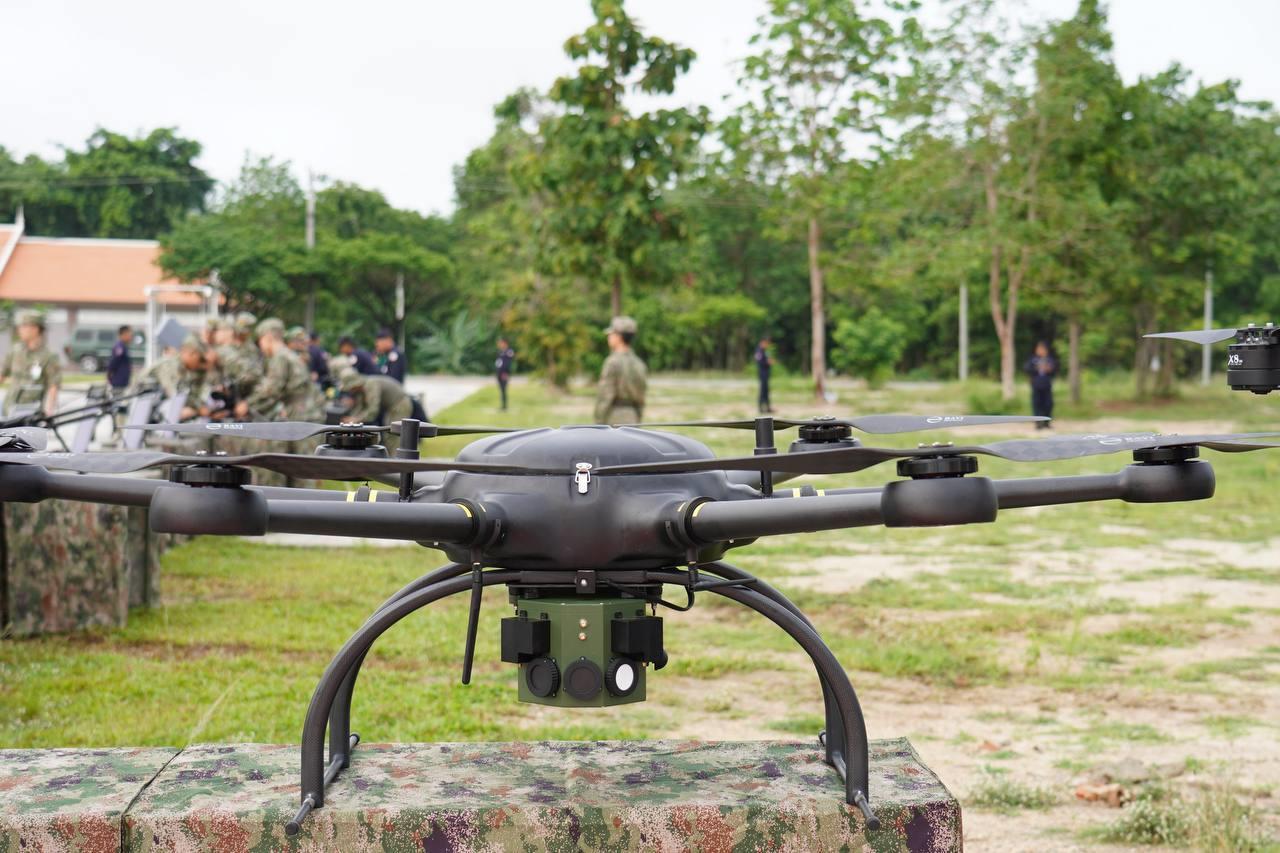(Kampong Chhnang): General Vong Pisen, Commander-in-Chief of the Royal Cambodian Armed Forces, and and Lyu Guangkun, Deputy Chief of Staff of the People’s Liberation Army (PLA) Southern Theatre Command and head of the Chinese delegation jointly stated that the Golden Dragon joint military exercise has become a symbol of the inseparable military cooperation between Cambodia and China. Both military leaders expressed confidence that, despite global geopolitical shifts, the ironclad friendship between the two nations remains strong and will continue to grow steadily.
Both leaders spoke on Saturday (May 17) during the opening ceremony of the 7th Golden Dragon joint military exercise between Cambodian and Chinese forces. The event took place at the Royal Gendarmerie Training Centre (Phnom Chum Sen Reak Reay) in Kampong Chhnang Province.
Vong Pisen emphasised that the 2025 annual Golden Dragon joint military exercise between the Royal Cambodian Armed Forces and the Chinese People's Liberation Army has expanded in scope, featuring more in-depth content and increased participation in terms of personnel and modern military equipment compared to previous years. The exercise includes integrated forces from the army, navy, air force, and Royal Gendarmerie operating within Cambodia, as well as various specialised units. This expansion reflects the growing depth and breadth of military cooperation between Cambodia and China across all sectors.
“I firmly believe that the Golden Dragon exercise will continue to expand and eventually include even more specialised units in the future, to the benefit of both the Cambodian and Chinese armed forces. It has truly become a symbol of the robust and unbreakable military cooperation between our two countries,” Vong Pisen underscored.
General Vong Pisen also clarified that the primary objective of the 2025 Golden Dragon exercise is to deepen the comprehensive strategic partnership between Cambodia and China, strengthen high-level political trust, and contribute to building a shared future community between the two nations in the new era. The exercise is also designed to enhance cooperation and the exchange of military experience, reinforce common security perspectives, coordinate joint operations, and ensure sustainability — all in support of maintaining regional peace. Additionally, it aims to improve the practical combat capabilities of both armed forces, particularly in counterterrorism and disaster relief, while promoting the prestige of the Golden Dragon exercise at regional and international forums.
The general further noted that the exercise plays a crucial role in improving the capabilities and mutual understanding of both militaries. It allows for demonstrations of operational readiness, exchange of expertise, better comprehension of joint command structures, standard operating procedures, equipment usage, and the integration of modern technologies and skills. The exercise also enables Cambodian forces to strengthen relations, foster unity, and enhance adaptability for effective collaboration with foreign counterparts in joint operations—both domestically and internationally—in addressing real-world challenges efficiently and promptly.
According to Lyu Guangkun, the 2025 Golden Dragon exercise reflects the close cooperation between both armed forces, facilitating joint learning and the sharing of experiences in specialised fields to further enhance capabilities and mutual understanding. The exercise also promotes cultural and conceptual exchange, reinforcing the ever-deepening China-Cambodia friendship in the new era.
“The Golden Dragon exercise is a symbol of military cooperation between China and Cambodia. The two countries have successfully conducted this exercise six times.
During this training, participating forces should fully appreciate the opportunity to train, exchange knowledge, and contribute to strengthening the real combat capabilities of both armed forces, particularly in counterterrorism operations. It also builds confidence in the ongoing military cooperation between the two sides,” Lyu Guangkun underlined.
Lyu Guangkun went on to stress that China and Cambodia are key players in the region, sharing a common responsibility in maintaining peace, stability, and development. The Golden Dragon exercise is centred on peace, friendship, and cooperation, and seeks to further strengthen and broaden the strategic partnership between the two nations. It aims to deepen mutual political trust and enhance military cooperation to project a strong message of regional stability and defence.
He added that China and Cambodia have always supported one another during times of hardship. Despite global uncertainties, the enduring relationship between the two nations stands as a testament to their strategic partnership. He expressed strong confidence that, regardless of international developments, the ironclad friendship between China and Cambodia will remain steadfast and continue to flourish.
“China and Cambodia are working hand in hand in close cooperation to implement the Global Development Initiative, the Global Security Initiative, and the Global Civilisation Initiative — striving to building an all-weather Cambodia-China Community with a Shared Future in the New Era, and making a meaningful contribution to regional peace and collective development,” Lyu Guangkun concluded.
The joint exercise took place in the following locations. First, land and air operations at the Royal Gendarmerie Training Centre (Phnom Chum Sen Reak Reay) in Kampong Chhnang Province; second, naval and air operations in Cambodian maritime and airspace areas in Preah Sihanouk Province. Over 2,000 Cambodian and Chinese military personnel are participating. The exercise involves the use of advanced weapons and equipment, including artificial intelligence (AI), reflecting the modernization of the Royal Cambodian Armed Forces in line with current developments.
The Cambodia-China Golden Dragon joint military exercise has been held seven times since its inception in 2016. The two sides temporarily suspended the exercise on three occasions: in 2017 due to Cambodia’s anti-drug campaign and commune elections, and again in 2021 and 2022 due to the COVID19 pandemic.
=FRESH NEWS
